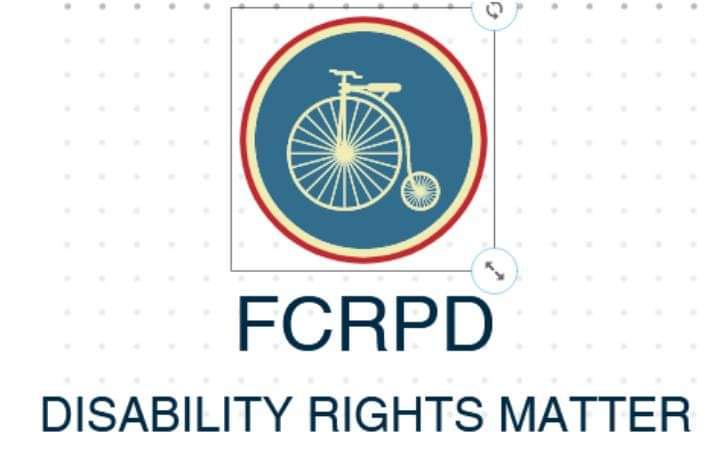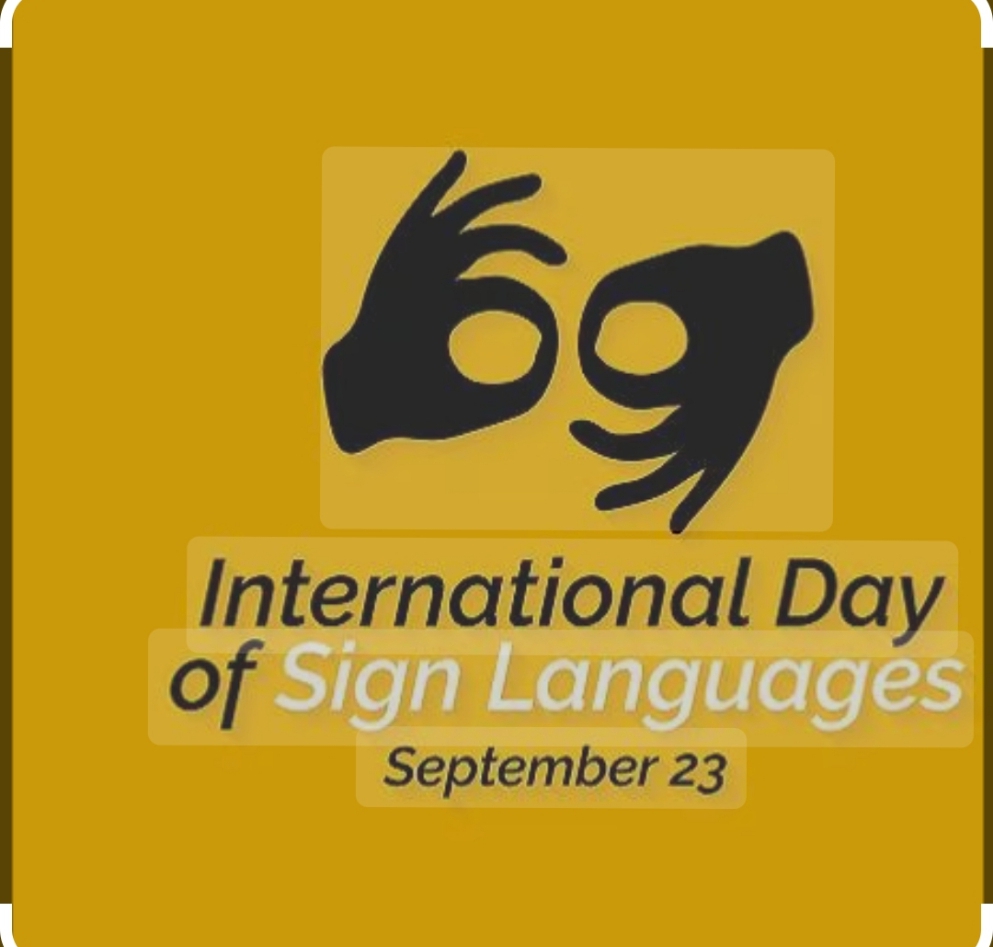some of the challenges faced by persons with Disability
SOME OF THE CHALLENGES FACED BY PERSONS WITH DISABILITIES
Based on survey, the challenges faced by persons with disabilities can be centered on the following: The family, environment, society, education, and some African cultures,
The family
The family is the is the first stage of every human being. In fact, it is regarded as the first school in life. This is because it’s in the family that a child is introduced to many things in life such as stills, tradition, language etc. But it is also in the same family where most discriminations towards persons with disabilities begins it’s life from. It is observed that in many families, parents do not regard persons with disabilities as part of the family. In fact they are never involved in the decisions of the family. To some parents, investing money in the affairs of their children with Disabilities is a waste. This result to other members not valuing them as their elders or younger ones.
The environment
The environment should be a place free and inclusive for all. This is a place we’re we all live in and should therefore be a very conducive place for all. The irony part of it is that this is the same place we’re most persons with Disabilities in Africa face uncountable challenges. In Africa, most of the environments are filled with open gutters, holes, bricks and stones that makes it very difficult for persons with visually impairment to move freely without being guided. Most of the structures including government and public are inaccessible for persons in wheelchairs. Most of this structures are built without rams to give access to the physically challenged.
The society
The discriminations in most African societies towards persons with disabilities is unpredictable. Most people do not want to associate with persons with Disabilities. It’s so sad that most drivers in public transportations are reluctant to stop for persons with Disabilities all because of discriminations. The most venerable in this case is persons in wheelchairs. Some drivers will instead tell you “no I can’t take you because my boot can’t accommodate your wheelchair.” Or sometimes the passengers will instead tell the driver “please don’t stop, he will waste our time” look at such wickedness. Many don’t want to bee seen with persons with Disabilities.
Education
Persons with Disabilities face many challenges trying to get access to quality education simply because there are insufficient materials and special accommodations for them to get access to learning materials. Most of the school buildings are not accessible for all persons with Disabilities . Teachers/lecturers do not want to spend their time on persons with disabilities.
Finally on some African cultures.
Cultures are very good and essential in upbringing children. It is through culture that African children are taught important aspects of live such as tolerance, respect, obedience etc. But however some negative African accommodate discriminations to the highest extend. This is were words like “if you wake up in the morning and meet a blind person, then know that it’s a bad lunch for you, the cane of a blind person can bring hard luck when it touches you” are inculcated in the minds of the young. Growing with this baseless ideas will definitely prevent one from helping a person with disability.
In conclusion, please let’s work together and fight discrimination.
in the services of PWDs
we remain committed.
FCRPD
The Negligence of African countries in Providing for Persons with Disabilities
In recent years, the global discourse surrounding disability rights has gained significant traction, highlighting the importance of inclusivity and equal opportunities for all individuals, regardless of their physical or mental conditions. However, in many African countries, persons with disabilities (PWDs) continue to face systemic neglect and marginalization. This article delves into the factors contributing to the negligence of African governments in providing for PWDs and the urgent need for reform. Historical ContextHistorically, disability has often been viewed through a lens of stigma and misunderstanding in many African cultures. Traditional beliefs sometimes attribute disability to supernatural causes or punishment for past sins, leading to social exclusion and discrimination. As a result, PWDs have been relegated to the margins of society, with limited access to education, employment, and healthcare. Legislative GapsWhile several African nations have ratified international treaties, such as the United Nations Convention on the Rights of Persons with Disabilities (CRPD), the implementation of these commitments remains alarmingly poor. Many countries lack comprehensive legislation that specifically addresses the rights and needs of PWDs. Where laws do exist, they are often poorly enforced, leaving PWDs without the protections they need to thrive. Economic BarriersEconomic constraints play a significant role in the neglect of PWDs. Many African nations grapple with limited resources and competing priorities, which often results in disability issues being side-lined. The absence of inclusive economic policies and programs further exacerbates the situation. PWDs frequently face barriers to employment, with employers often reluctant to hire them due to biases and misconceptions about their capabilities.Inaccessible InfrastructureOne of the most glaring examples of negligence is the lack of accessible infrastructure. Public buildings, transportation systems, and educational institutions often fail to accommodate the needs of PWDs. This not only hinders their mobility but also restricts their access to essential services. For many PWDs, the physical environment remains a significant barrier, perpetuating cycles of poverty and exclusion. Social Stigma and DiscriminationSocial attitudes towards disability continue to hinder progress in many African countries. PWDs often face discrimination and social isolation, leading to a lack of community support and understanding. This stigma can discourage PWDs from seeking education or employment, further entrenching their marginalization. The Role of Advocacy and Civil SocietyDespite the challenges, there is a growing movement of advocacy and civil society organizations working to empower PWDs in Africa. These organizations play a crucial role in raising awareness, advocating for policy changes, and providing support services. However, they often operate with limited funding and resources, making it difficult to effect widespread change. The Path ForwardAddressing the negligence of African governments towards PWDs requires a multifaceted approach. Firstly, there is a need for comprehensive legislation that enshrines the rights of PWDs and ensures their inclusion in all aspects of society. Governments must prioritize funding for disability-related programs and initiatives, leveraging partnerships with civil society and international organizations.Awareness campaigns are also essential to changing societal attitudes towards disability. By promoting positive narratives and showcasing the capabilities of PWDs, these campaigns can help dismantle harmful stereotypes and foster a more inclusive environment.Additionally, investing in accessible infrastructure is crucial. Governments must ensure that public spaces, transportation, and services are designed with PWDs in mind, enabling them to participate fully in society. ConclusionThe negligence of African governments in providing for persons with disabilities is a pressing issue that demands urgent attention. By acknowledging the challenges and committing to meaningful reforms, African nations can create a more equitable society that values the contributions of all its citizens. The time for change is now, and it is imperative that the rights and dignity of PWDs are recognized and upheld.Certainly! The situation for persons with disabilities (PWDs) in Africa is complex and multifaceted, encompassing various social, economic, and political dimensions. Here are some additional insights into this critical issue: Intersectionality and DiversityPWDs in Africa do not form a monolithic group; rather, their experiences are shaped by various factors, including gender, age, ethnicity, and socio-economic status. For example, women with disabilities often face compounded discrimination due to both their gender and disability, leading to higher rates of violence and limited access to resources. Similarly, individuals from marginalized ethnic groups may encounter additional barriers, further complicating their struggle for rights and recognition. Education and Employment ChallengesEducation is a significant area where neglect is evident. Many educational institutions lack the necessary accommodations, such as accessible classrooms and trained staff, to support students with disabilities. This often results in high dropout rates among PWDs, denying them the opportunity to acquire skills and knowledge that are crucial for employment.In the labour market, PWDs face pervasive discrimination. Employers may be hesitant to hire individuals with disabilities due to misconceptions about their abilities or the costs associated with making workplaces accessible. Consequently, PWDs often find themselves in informal employment, which typically offers lower wages, fewer benefits, and less job security. Health Care AccessAccess to healthcare is another critical issue for PWDs in Africa. Many health facilities are not equipped to meet the unique needs of individuals with disabilities, leading to inadequate care. Additionally, PWDs may experience difficulties in accessing general healthcare services due to physical barriers, lack of transportation, and social stigma. Community-Based RehabilitationOne promising approach to addressing the needs of PWDs is community-based rehabilitation (CBR). This strategy focuses on integrating PWDs into their communities through health, education, and social services. CBR promotes the idea that PWDs can lead fulfilling lives and contribute to society when provided with the appropriate support and opportunities. Successful CBR programs can empower PWDs and strengthen community awareness about disability rights.Global and Regional InitiativesInternationally and regionally, there are various initiatives aimed at promoting the rights of PWDs. Organizations like the African Union have developed frameworks and policies to enhance the welfare of PWDs, such as the Protocol to the African Charter on Human and Peoples’ Rights on the Rights of Persons with Disabilities in Africa. However, the effectiveness of these initiatives often hinges on national governments’ commitment to implementation. The Role of TechnologyTechnology can play a transformative role in improving the lives of PWDs. Accessible technology, such as screen readers, assistive devices, and mobile applications, can enhance communication, education, and employment opportunities. Governments and private sectors should invest in developing and disseminating such technologies to bridge gaps in accessibility. Advocacy and EmpowermentAdvocacy remains a crucial tool for driving change. Empowering PWDs to advocate for their rights and participate in decision-making processes can lead to more responsive policies and programs. Training programs that equip PWDs with advocacy skills can foster a strong movement for change, ensuring that their voices are heard in political and social spheres. ConclusionThe negligence of African governments toward persons with disabilities is a multifaceted issue that requires comprehensive strategies and concerted efforts from all sectors of society. By addressing the systemic barriers that PWDs face, promoting inclusivity, and ensuring that their rights are upheld, African nations can move towards a more equitable and just society. The active involvement of PWDs in this process is essential, as their lived experiences and insights are invaluable in shaping effective policies and programs.
9th July 2024 FCRPD attended and offered Human guide Services at the Disability awareness Walk organized by “Remembering Reuel Foundation
PERSONS With DISABILITIES DESERVE FAIR TREATMENT.
in most of the countries in Africa, persons with disabilities are attributed with very negative traditional beliefs and taboos. Some belief that having a child with disability is a punishment as a result of some thing done by the parents in the past. Others belief is a bad luck to the society. Some label them as people that possess no value to the society, to them the only thing a PWD can do is to seek for charity. This mentality is false and needs to be eradicated in the minds of people. persons with Disabilities possess lots of capabilities and are equally important as any other person.
In raising awareness that children with disabilities deserved to be loved and treated with respect, dignity and given all the rights they deserved, on the 9th July 2024, FCRPD join remembering Reuel Foundation in a disability awareness walk organized by the Reuel foundation. The even was celebrated with an opening statement by the Sera, the Founder and other dignitaries including National Assembly members followed by a march pas by the three special needs schools in the Gambia with dialogues.
As usual FCRPD offered it’s voluntary and selfless service as human offering assistance to students with disabilities in terms of movement and other needs on the ground.
Thanks to all our volunteers and also the the Remembering Reuel Foundation for organising such an important event.
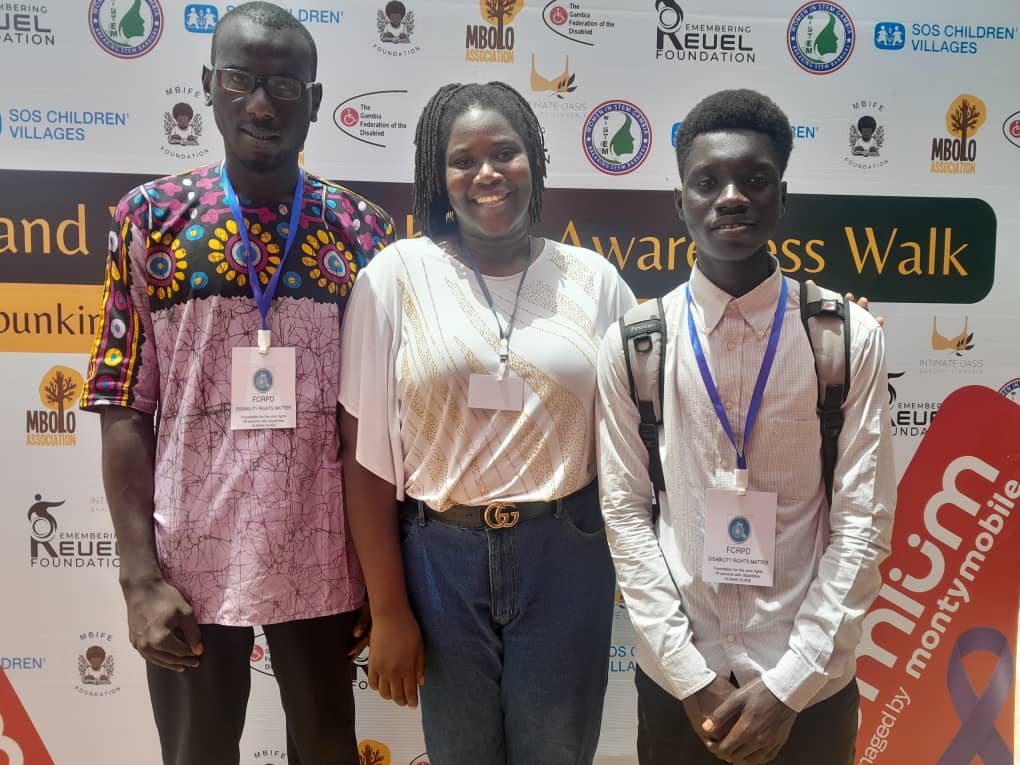
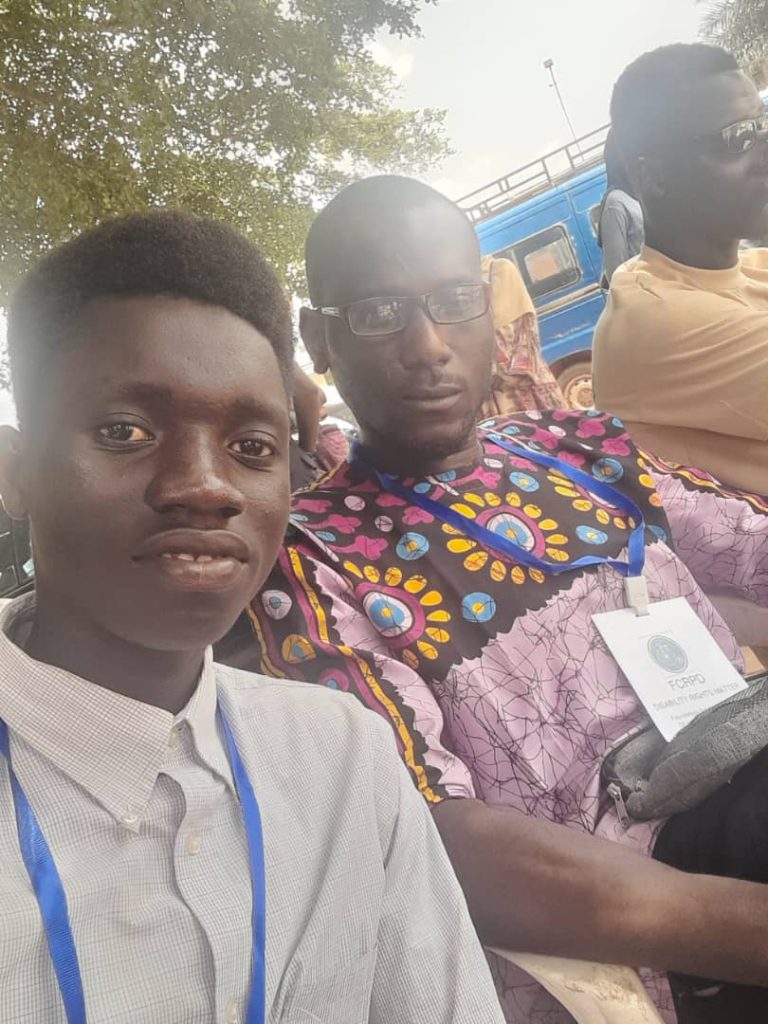
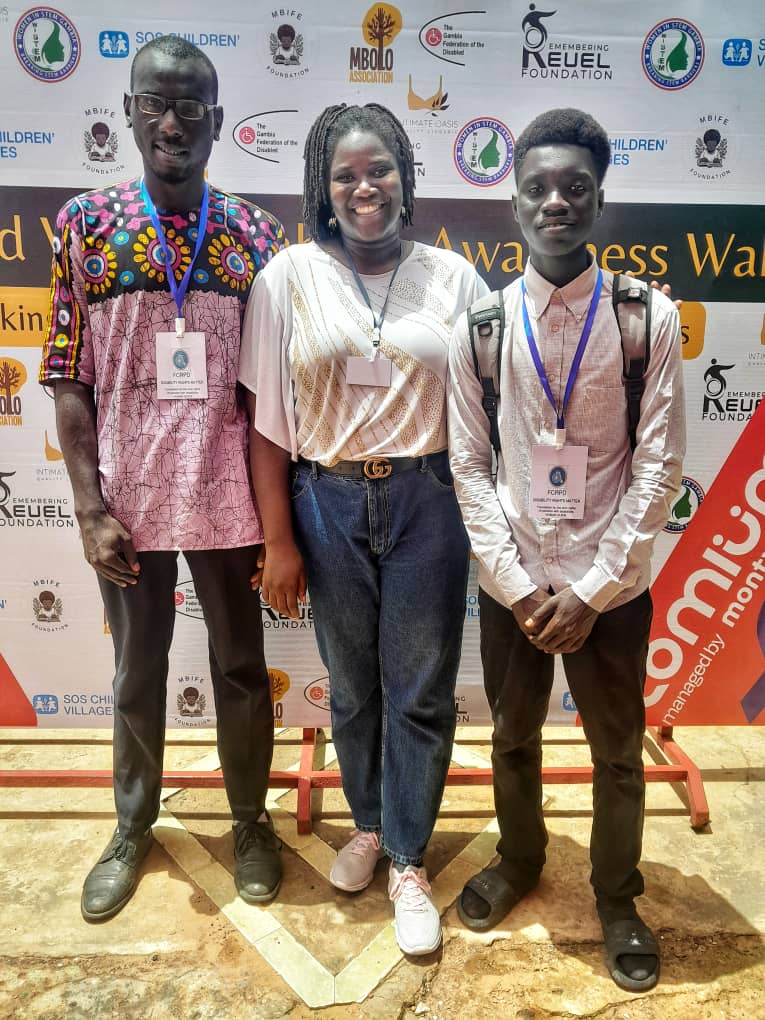
FCRPD in collaboration with Dr. Sharon Simmons from the U.S through the MWF organised three days entrepreneurship training for entrepreneurs with disabilities in the Gambia from the 21st to 23rd November 2024.
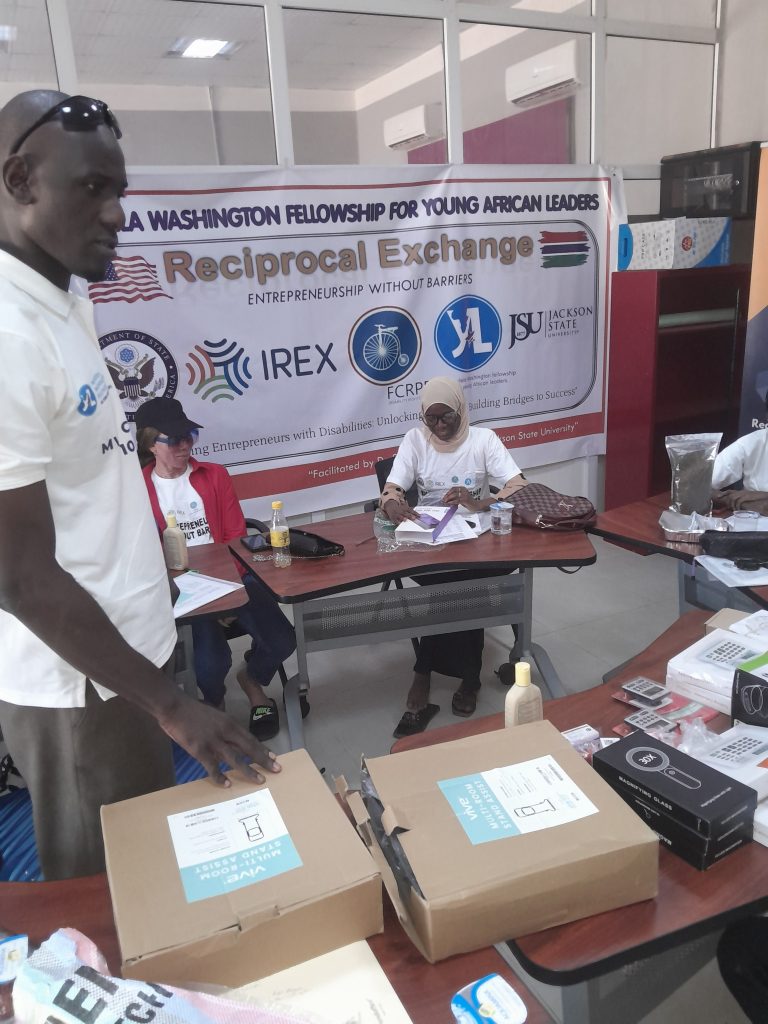
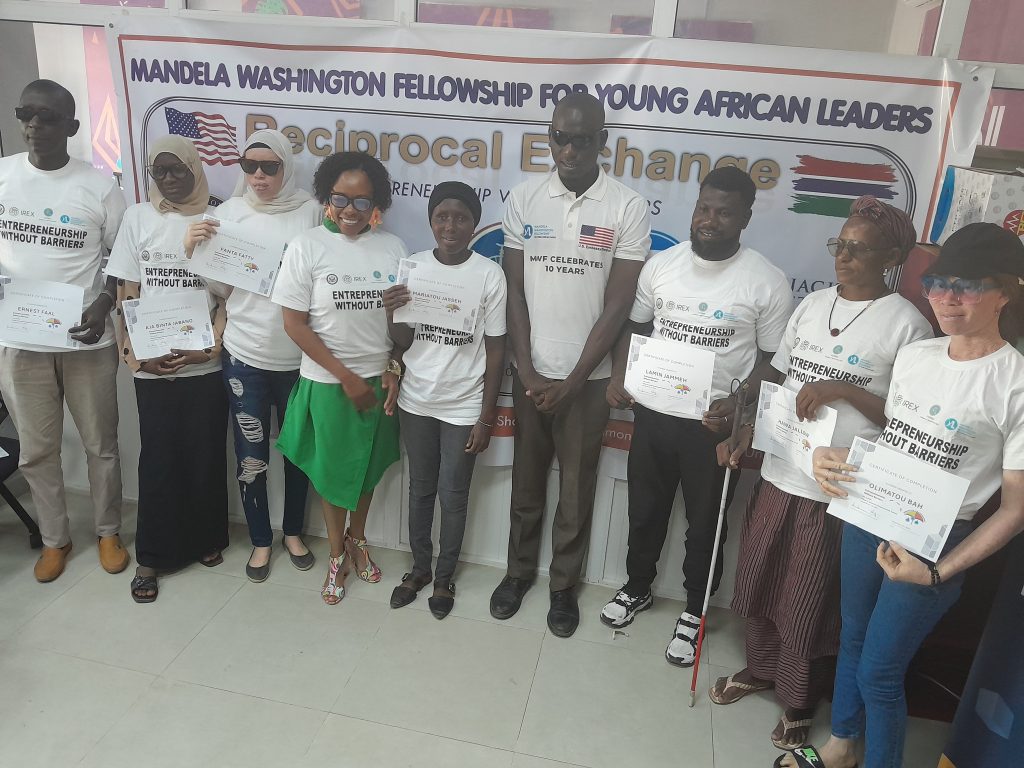
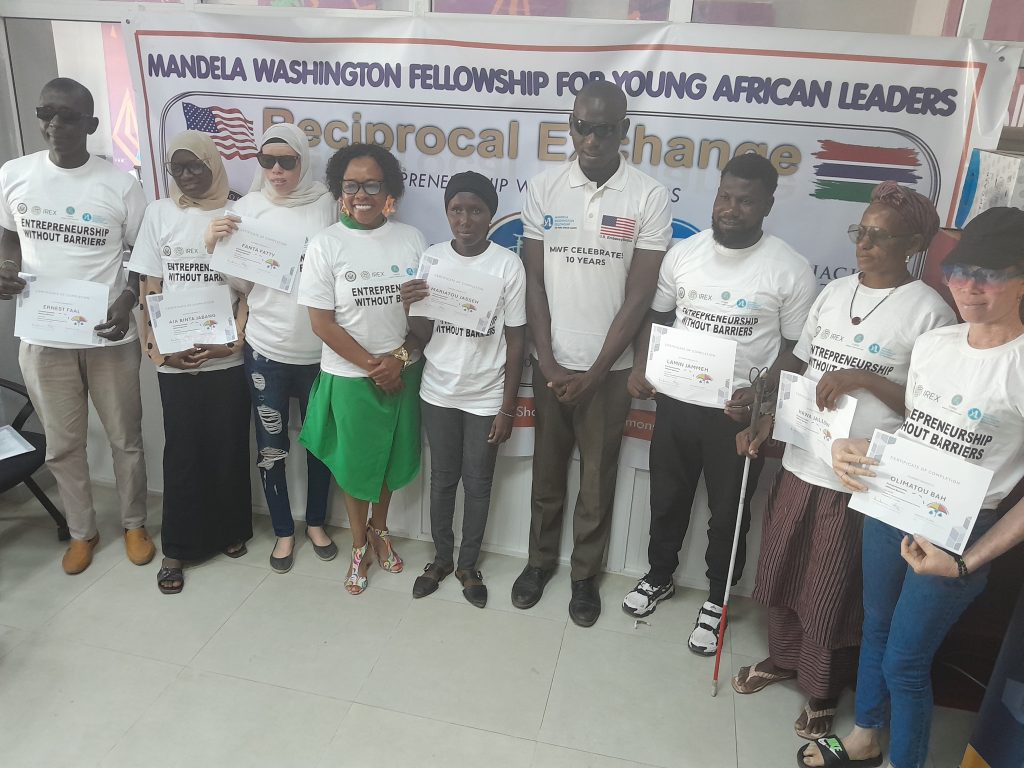
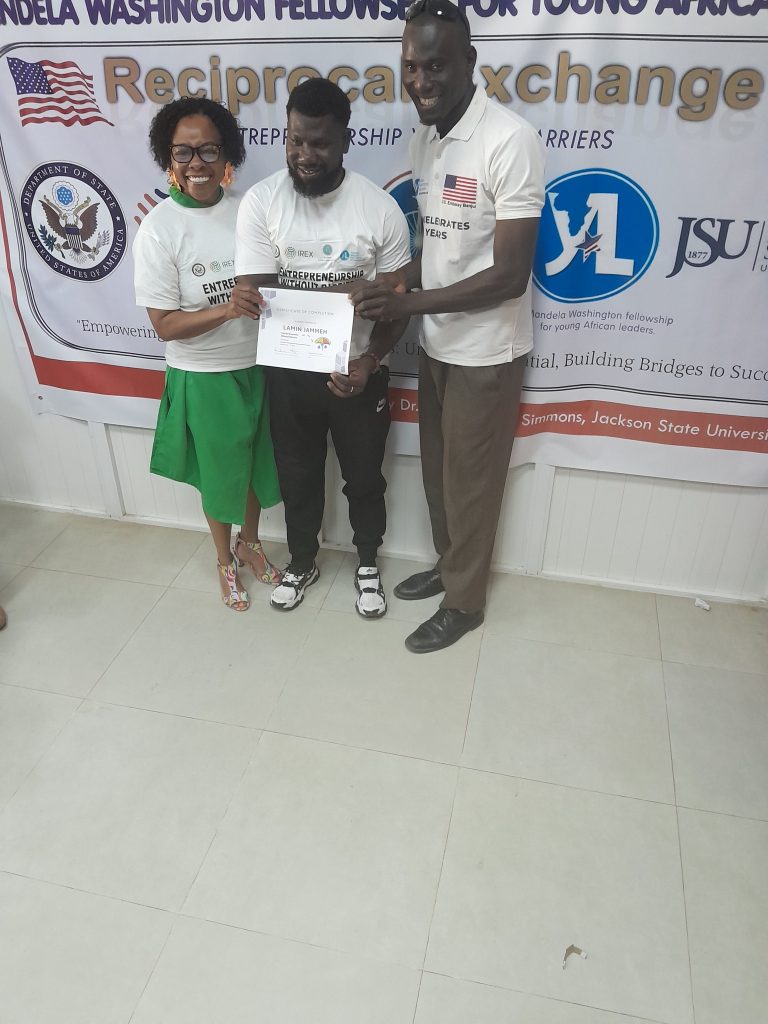
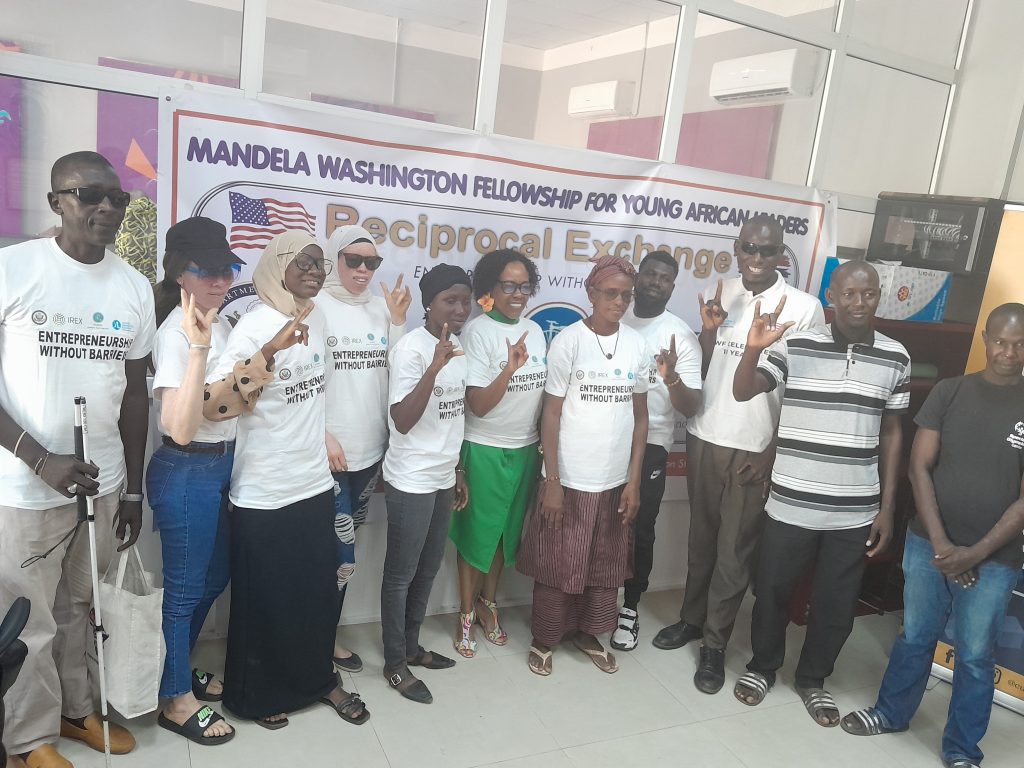
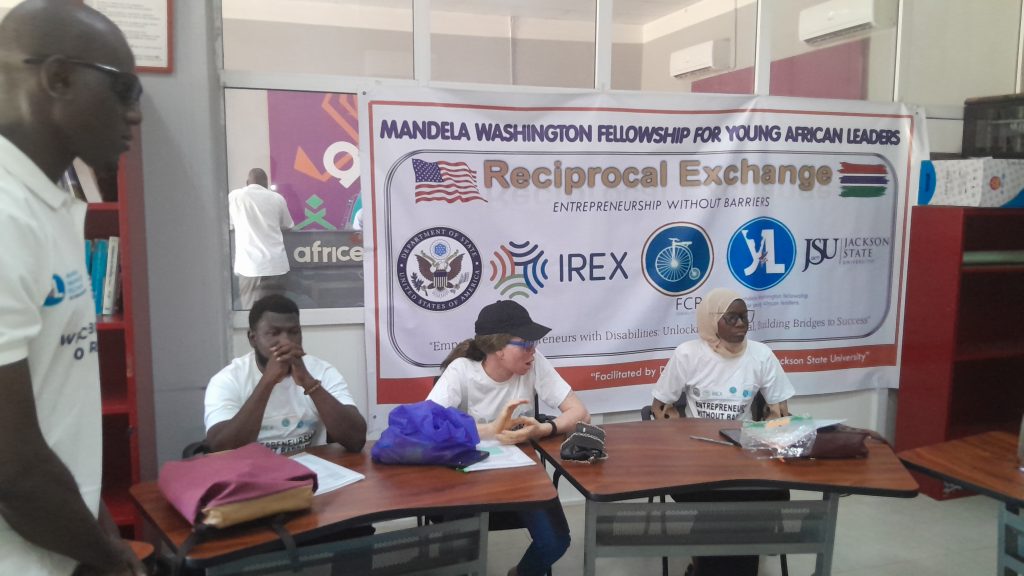
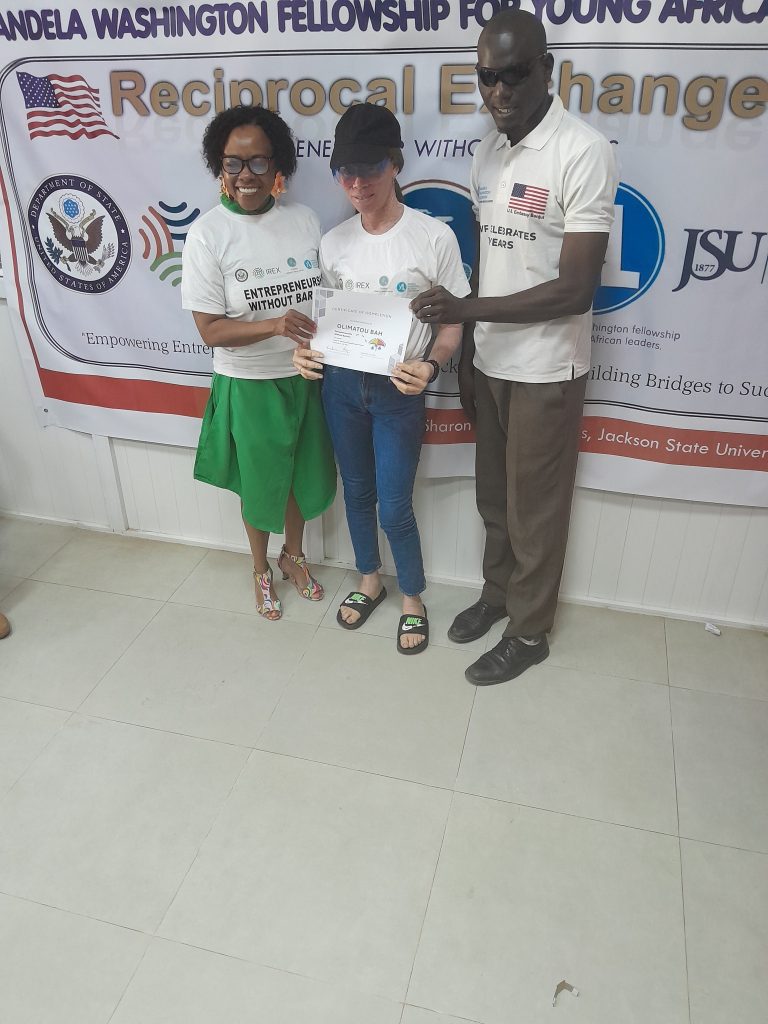
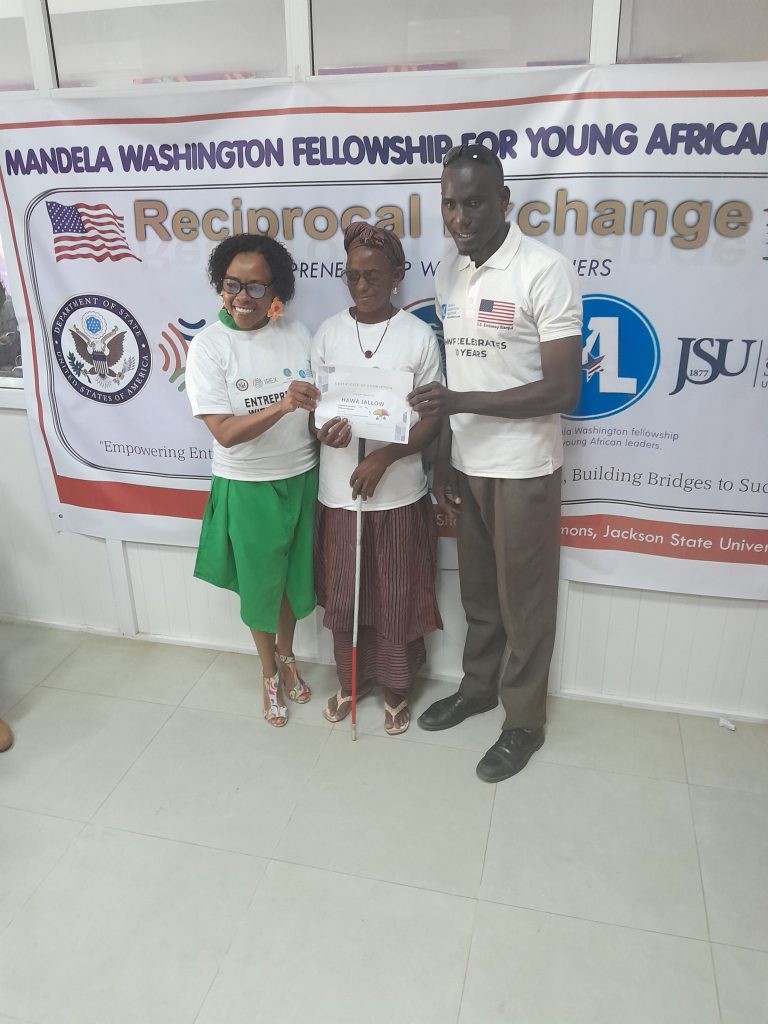
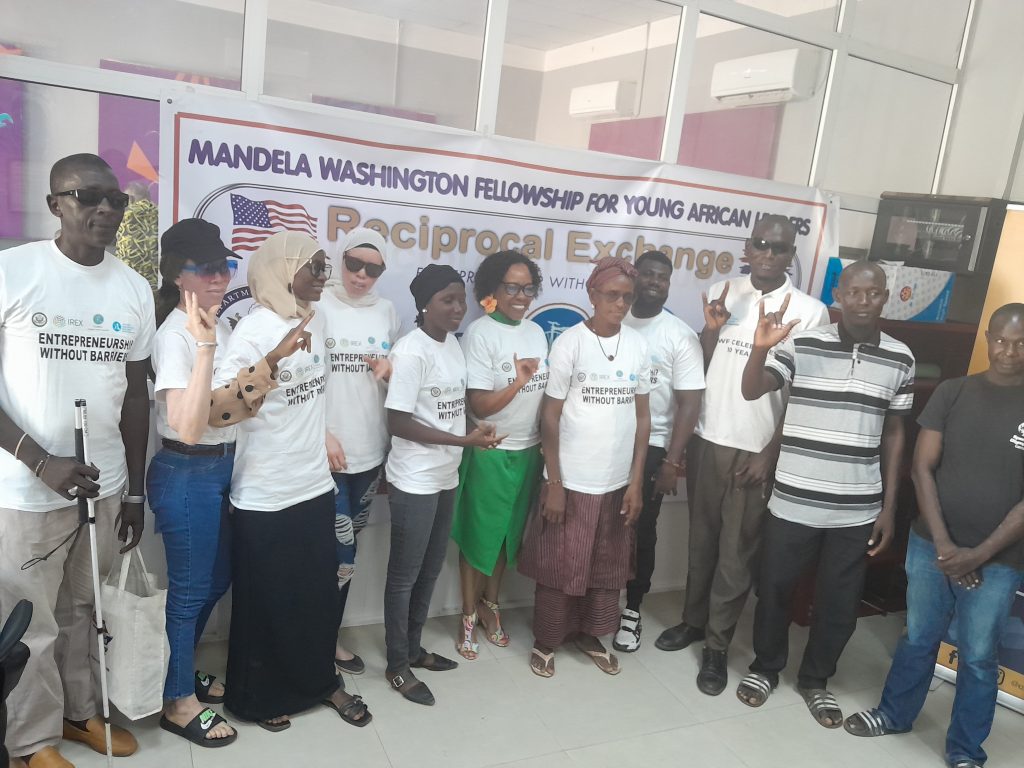
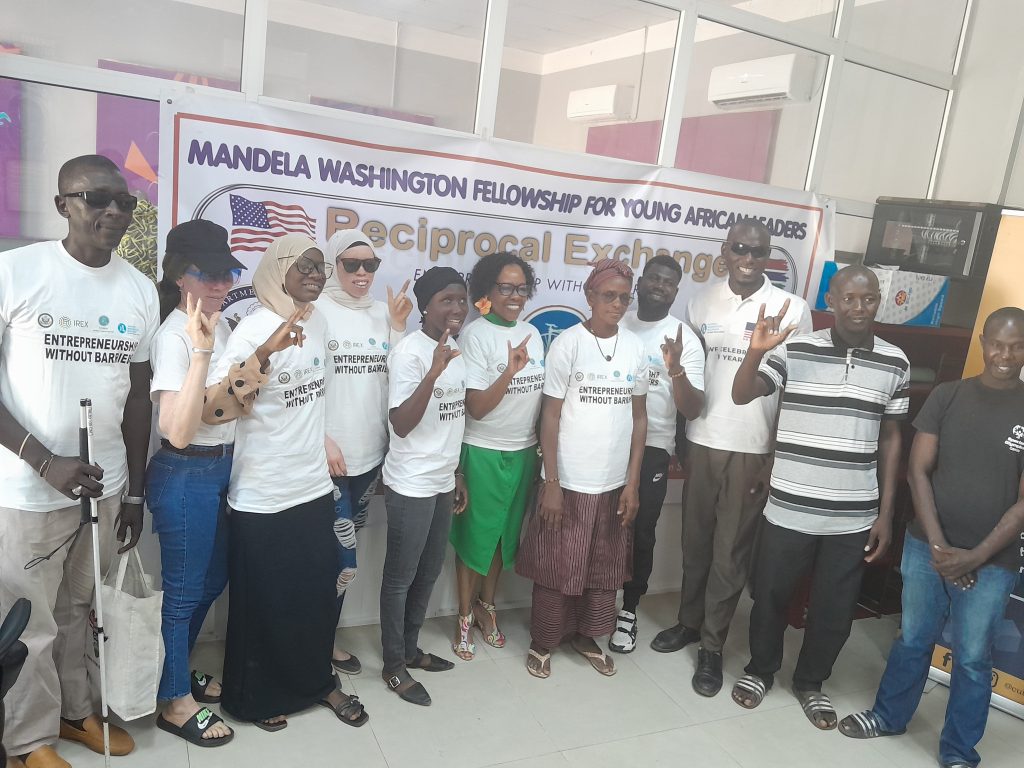
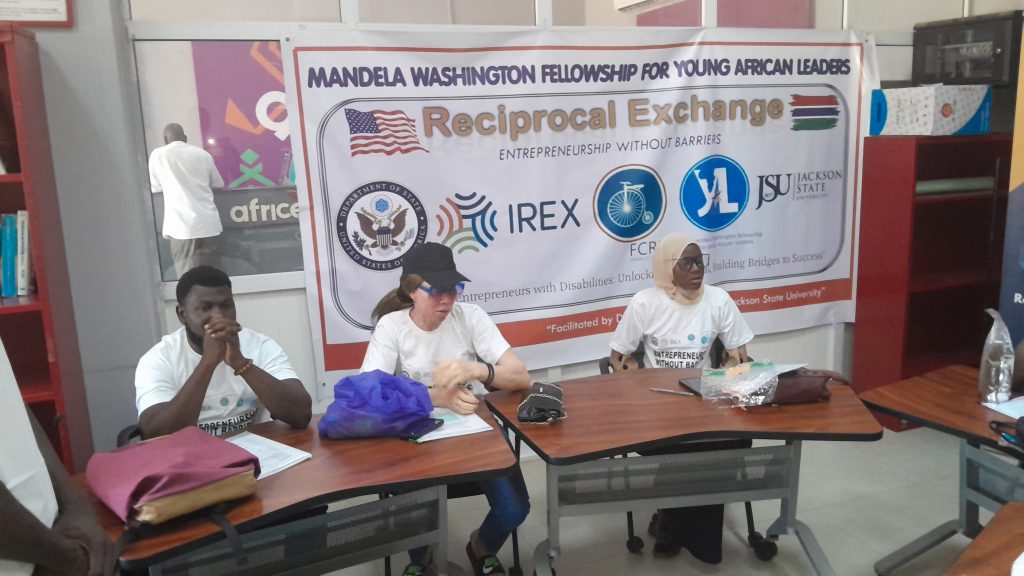
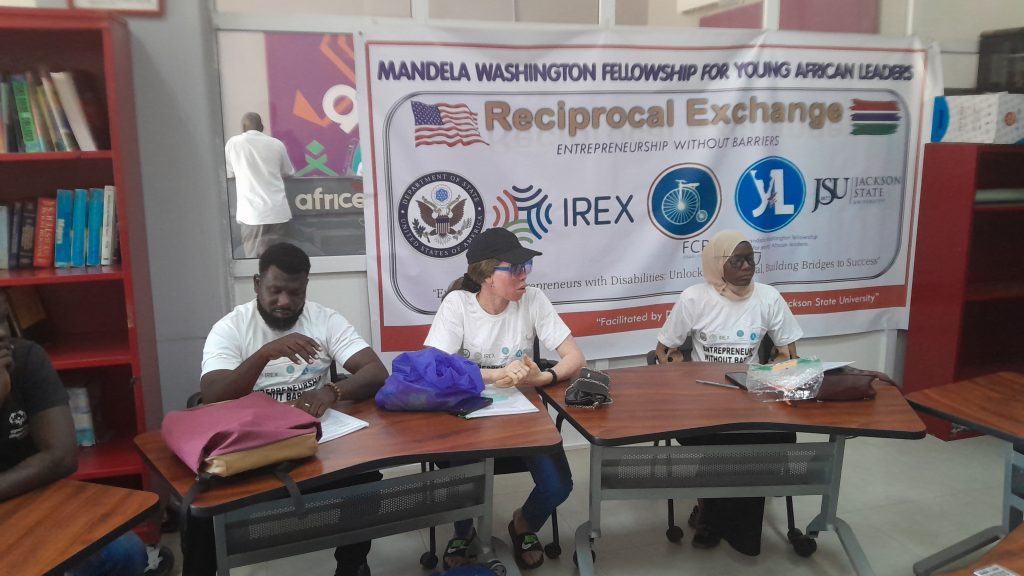
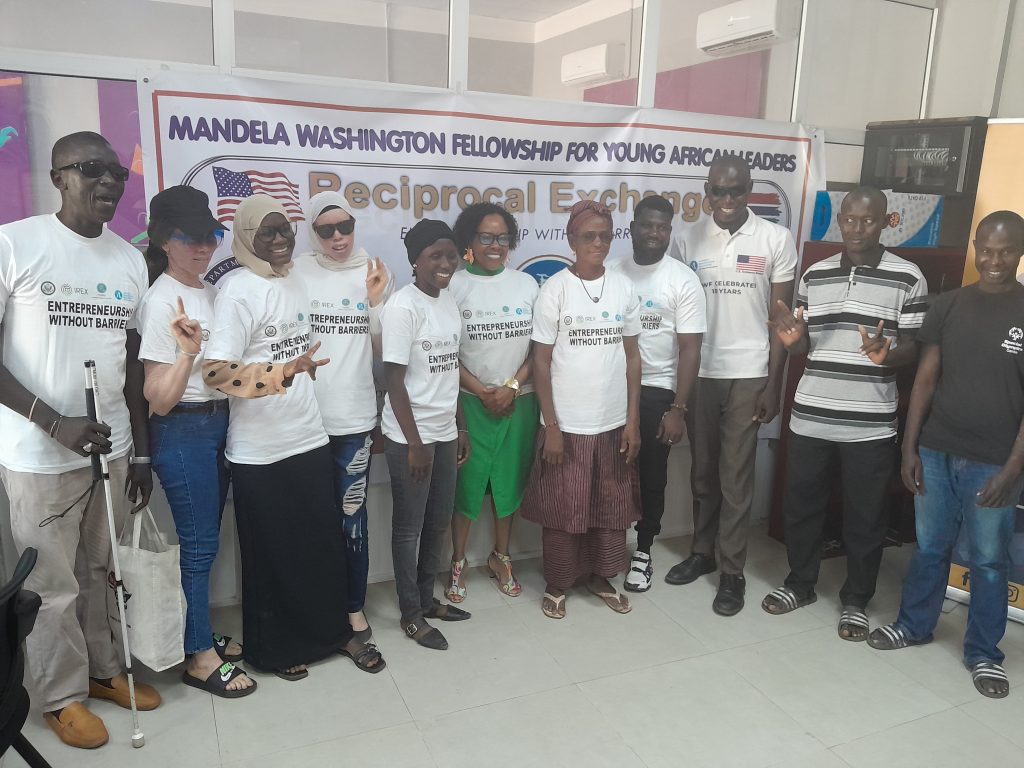
Through the MWF Mandela Washington fellowship, young African leaders initiative Reciprocal exchange program, funded by the U.S state department and administered by IREX.
FCRPD in collaboration with Dr. Sharon Simmons. An associate professor in the college of Business from Jackson state university JSU in the U.S. organized three days business training entitlement entrepreneurship without barriers for 20 entrepreneurs with disabilities in the Gambia on business strategies and skill on how to expand their businesses. Through the MWF Reciprocal exchange, Dr. Sharon had the opportunity to visit the Gambia and conducted the training. During the three days training, Participants were introduced to very important business skills and ideas such as the canvas business model and other strategies which will go a long way in helping to improve and uplift their skills to a standard form. They were as well exposed to skills on how to make a perfect pitch which Will help in attracting potential partners and funding opportunities.
In addition to the training, participants were provided with assistive devices such as Talking calculators, talking scales. Tablets, etc. this will help them in working on their respective businesses independently without having to fully depend on others.
Thanks to the U.S State department and IREX for such a great initiative as the MWF young African leaders initiative YALI . Much appreciations to Dr. Sharron Simmons and the entire staff of JSU.Together we can achieve the the change we looking for.
FCRPD Commemorates the international day of persons with disabilities
3rd December is annually celebrated as the international day of persons with disabilities. This day is set aside to advocate as well as recognize the great work done by persons with disabilities. This day sends a great signal to the society that persons with disabilities are part and parcel of the society and should not be underrate or discriminated. The theme for this year is AMPLIFYING THE LEADERSHIP OF PERSONS WITH FOR AN INCLUSIVE AND SUSTAINABLE SOCIETY. This calls for the participation and involvement of all stakeholders to achieve such. We all have a role to play in making the theme a reality. Starting from the family, society the government etc.
The family and society should realise that persons with disabilities should be treated equally and fairly as any other member of the society. PWDs should be given the rights and and included in all aspects of the society. They deserve to be given equal share of the national cake. Gone are days when a person with disability will have nothing to do but to beg in the streets. All they need is empowerment and empathy and not sympathy.
The government should create policies and procedures to protect PWDs from all kinds of discriminations, stigmatisation and isolations. Let’s all understand that it’s a right and not a previlliage.
In commemorating the day, the American corner, Banjul in collaboration with FCRPD organized a seminar to discuss on issues affecting PWDs and how to remedy this prevailing challenges. The seminar was attended by persons with and without disabilities to interact and discuss on the way forward. Mr Samba Jaiteh Batch Samba, the president and founder of the foundation for the civic rights of persons with disabilities FCRPD serving as one on the panelist discussed on the theme for this year’s celebration and highlighted the challenges in realising such. Noting that all hands should be on desk to achieve the theme. Madam Joanna Gomez, from the American corner also part of the panelist discussed on the importance of stakeholders coming together to support PWDs. She also highlighted that there is always power in uniting to form a strong front. The event continued with interactive questions and answers between the panelist coordinated by Mr. Baboucar Cham from the corner.
Much appreciation goes to the the American corner and all those that attended the event.
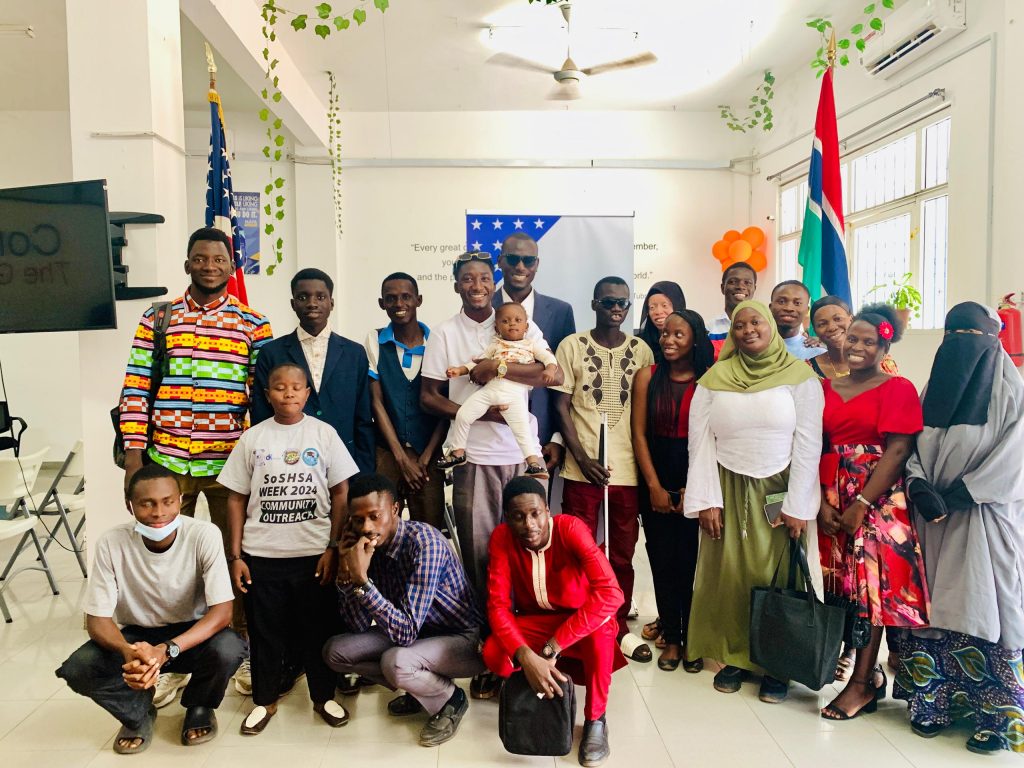
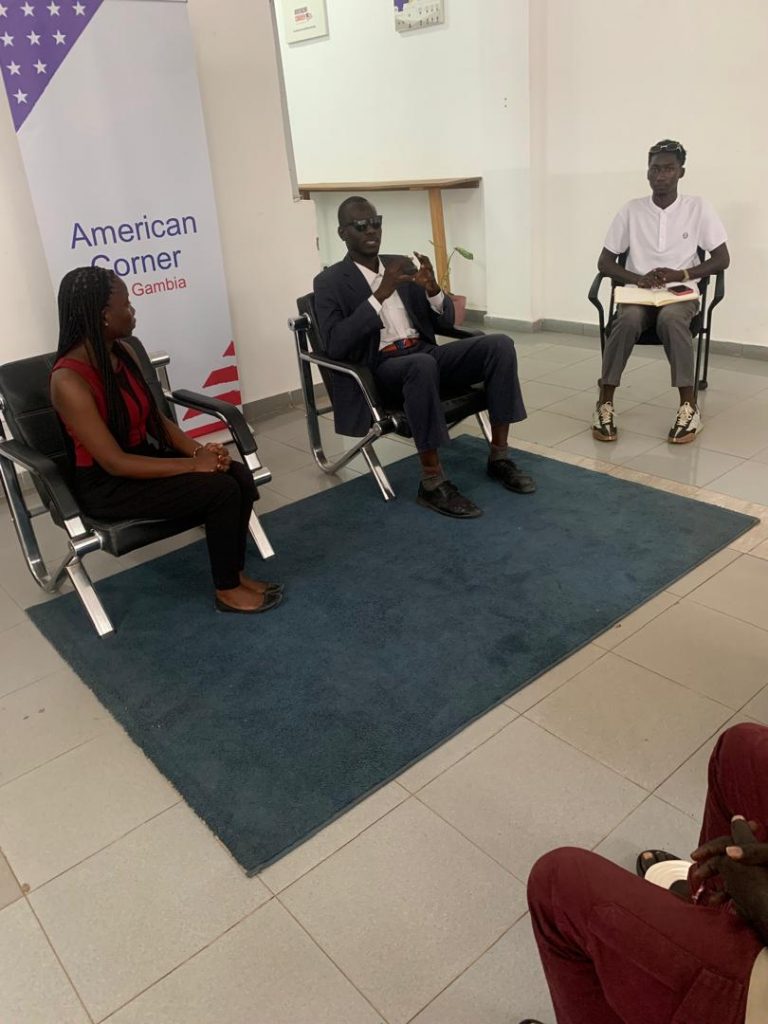
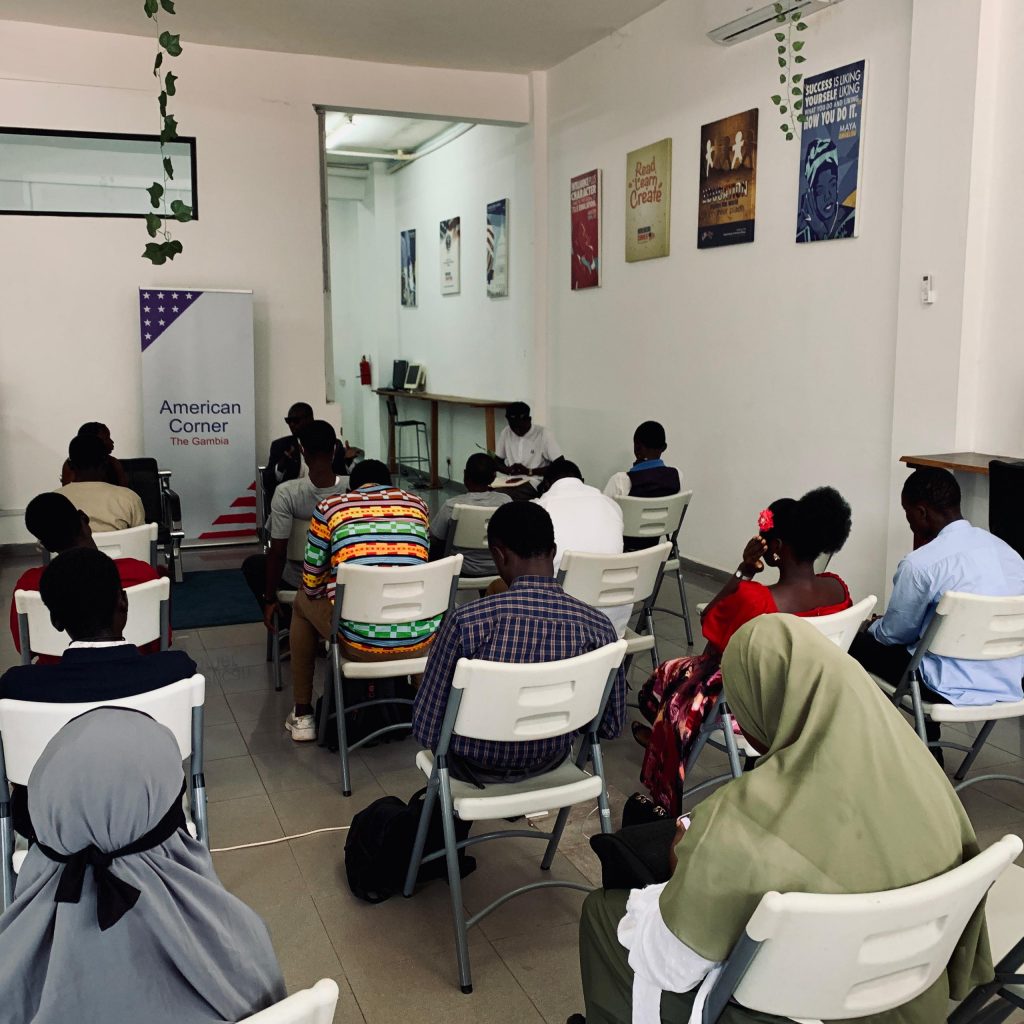
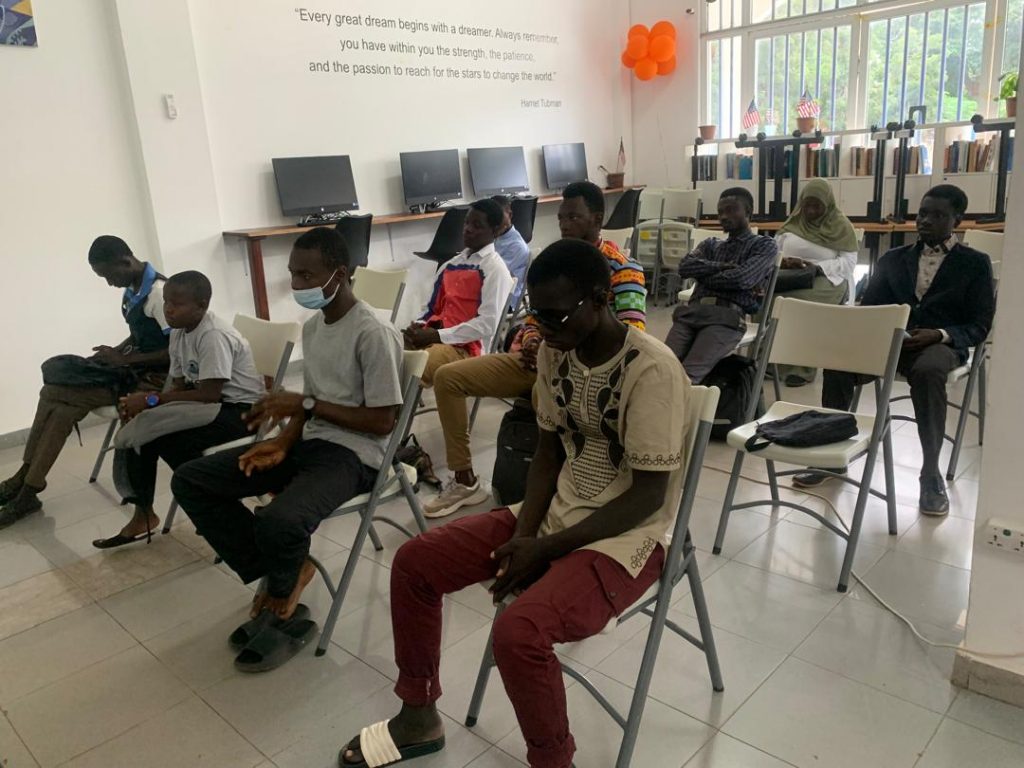
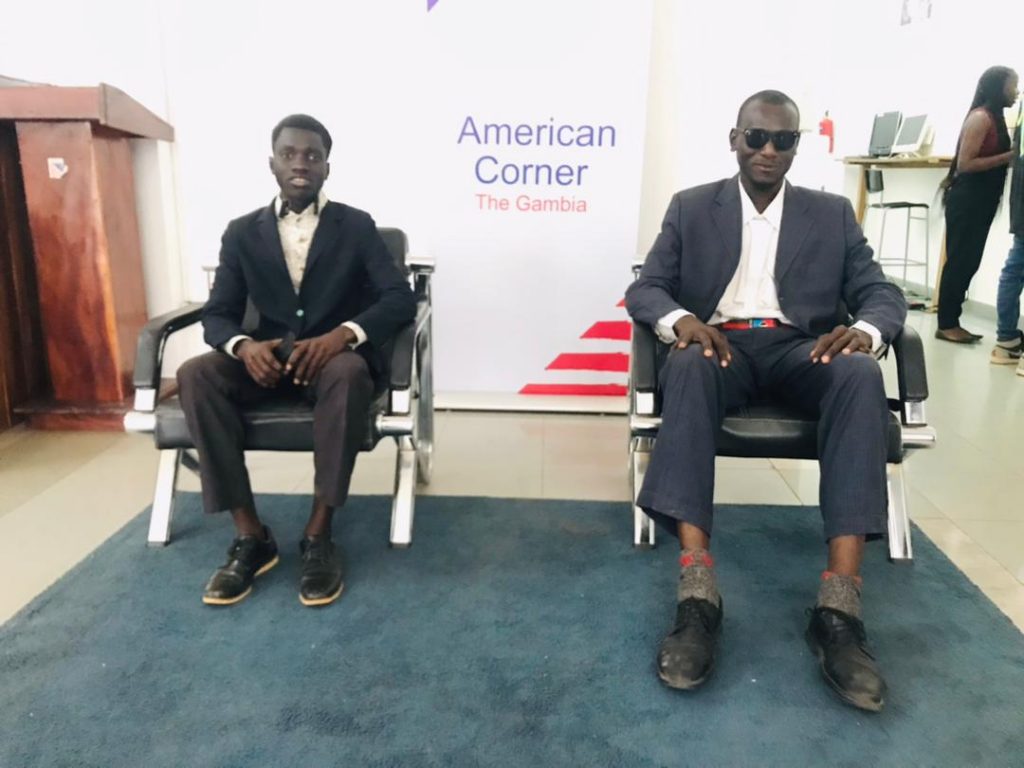
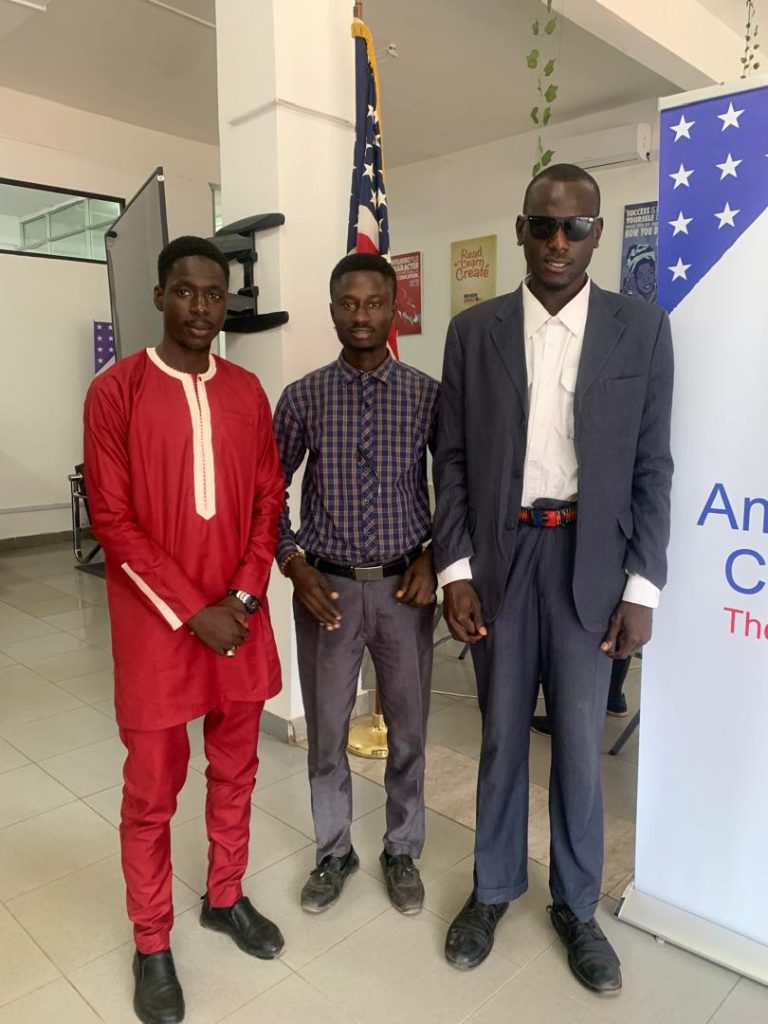
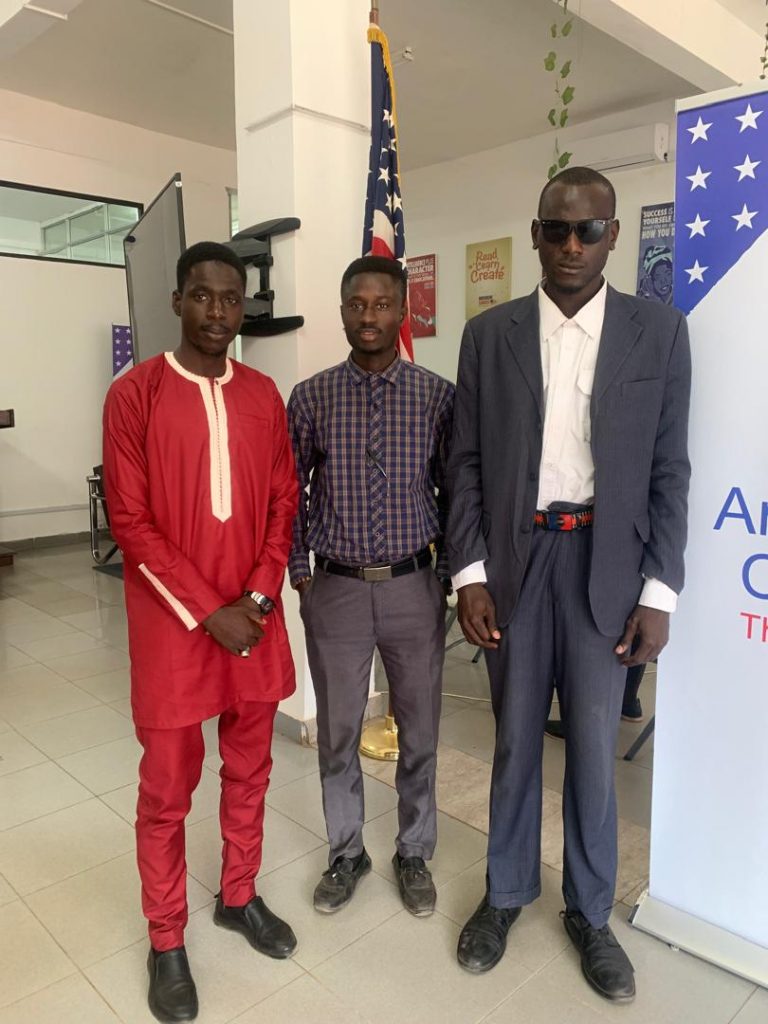
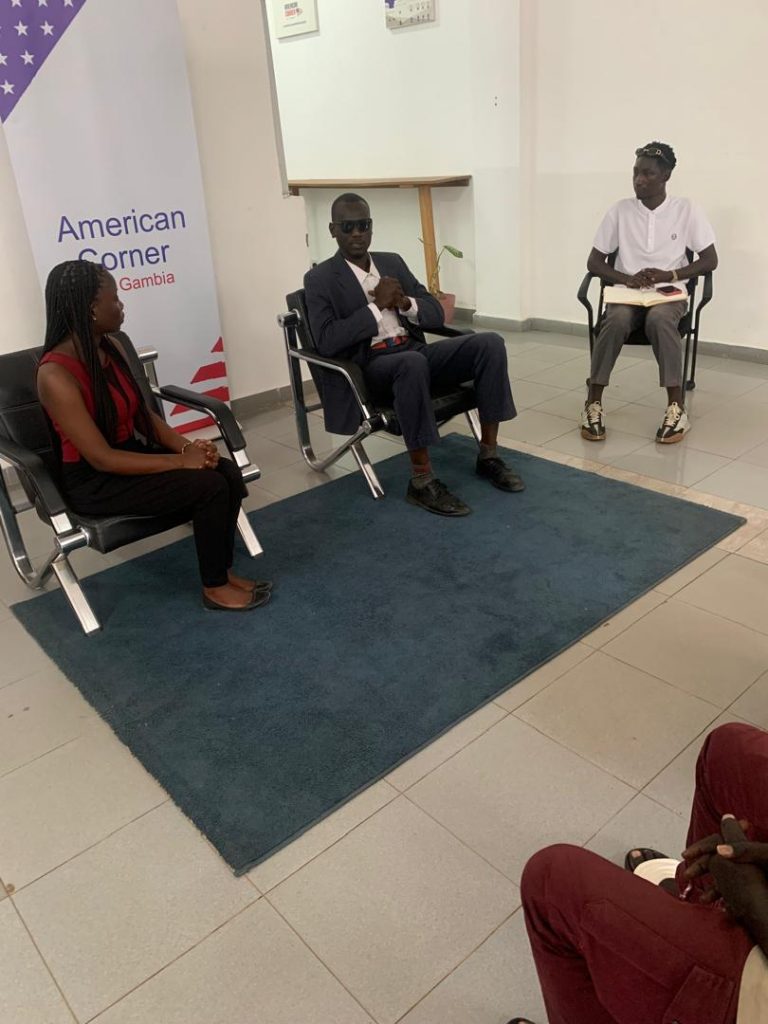
FCRPD Celebrates the white cane safety day 2024
FCRPD under the dynamic leadership of it’s president Mr Samba Jaiteh Batch Samba joins the visually impaired community In celebrating the international white cane safety day.
As a foundation that is so passionate in serving persons with disabilities and envisioning a society where persons with disabilities are given all the support, rights and total inclusion in all aspects of life, it deems it incumbent upon itself to also celebrate with the visually impaired community and to also continue its advocacy and sensitization on the important of this day as done for other PWDs.
White Cane Safety Day, observed annually on October 15, is a global celebration of the achievements of individuals who are visually impaired and a reminder of the crucial role the white cane plays in their mobility and independence.
This day serves not only to raise awareness about the needs and rights of people who are blind or have low vision, but also to highlight the challenges they face in various parts of the world, including The Gambia.
Lets give a quick look at the history of this important day The white cane has long been a symbol of independence for people with visual impairments. However, it was not until the early 20th century that the cane began to be widely recognized as an essential tool for mobility. In 1930, Lions Clubs International adopted a movement to promote the white cane as a symbol for blind pedestrians. This movement eventually led to the creation of White Cane Safety Day in the United States in 1964, after then-President Lyndon B. Johnson signed a proclamation to recognize the day.Since then, White Cane Safety Day has been celebrated worldwide as a day to advocate for the rights of people with visual impairments. It emphasizes the need for their full integration into society and recognizes their contributions to various fields, despite the obstacles they encounter.
Significance of White Cane Safety Day
The white cane is not merely a tool for the visually impaired—it is a symbol of autonomy, dignity, and empowerment. White Cane Safety Day serves to remind society that people with visual impairments can lead full and independent lives, provided they have the right tools and support. It is also a call to action, urging communities, governments, and individuals to ensure the safety, accessibility, and inclusion of visually impaired persons in all aspects of life.
In addition to mobility, the white cane helps to educate the public about the presence and rights of visually impaired individuals. The use of the white cane ensures that others, including drivers and pedestrians, recognize and respect the needs of those using it, especially when navigating busy streets or public spaces.Challenges Faced by Persons with Visual Impairments in The Gambia.
In The Gambia, persons with visual impairments face significant challenges in their daily lives. While efforts have been made to support their integration into society, many obstacles remain.
1. Limited Access to Mobility Training and Assistive Devices: Although the white cane is a symbol of independence, access to the cane and other assistive devices is limited in The Gambia. Many visually impaired individuals lack access to basic mobility training, which teaches them how to use the white cane effectively. Without this training, the cane cannot fully serve its purpose, leaving people dependent on others for mobility.
2. Inadequate Infrastructure: The country’s infrastructure often poses barriers for visually impaired individuals. Roads and sidewalks in The Gambia are frequently not designed with accessibility in mind, making it difficult for visually impaired individuals to navigate safely. Poorly maintained or nonexistent pedestrian pathways, lack of tactile paving, and unsafe crossing points put visually impaired pedestrians at constant risk of accidents.
3. Discrimination and Social Exclusion: In The Gambia, societal attitudes towards persons with disabilities, including those who are visually impaired, can lead to marginalization and discrimination. People with visual impairments often experience social isolation due to negative perceptions or a lack of understanding about their abilities. This can result in fewer opportunities for education, employment, and social inclusion.
4. Limited Educational Opportunities: there is only one special school for visually impaired children in The Gambia, the overall access to education remains limited. Many schools are not equipped with the necessary materials or teaching aids, such as Braille textbooks or assistive technology, to support the learning needs of students with visual impairments. As a result, these students may struggle to receive the education they need to succeed.
5. Lack of Employment Opportunities: Employment opportunities for visually impaired individuals in The Gambia are also scarce. Many employers are hesitant to hire people with disabilities, believing that they may not be able to perform the required tasks. This misconception further contributes to high unemployment rates among the visually impaired population, leading to economic challenges and a reduced quality of life.
Conclusion: White Cane Safety Day is an essential reminder of the rights and achievements of visually impaired individuals, both in The Gambia and around the world. While progress has been made in promoting inclusion, many challenges remain. Through continued advocacy, improved accessibility, and the provision of essential tools like the white cane, we can work towards a society where visually impaired individuals can live independently and with dignity, free from barriers that hinder their full participation in society.As we observe White Cane Safety Day, let us remember that the journey toward inclusion and accessibility is ongoing. By taking action to address the challenges faced by visually impaired individuals, especially in countries like The Gambia, we can help build a future where everyone, regardless of their abilities, can thrive.
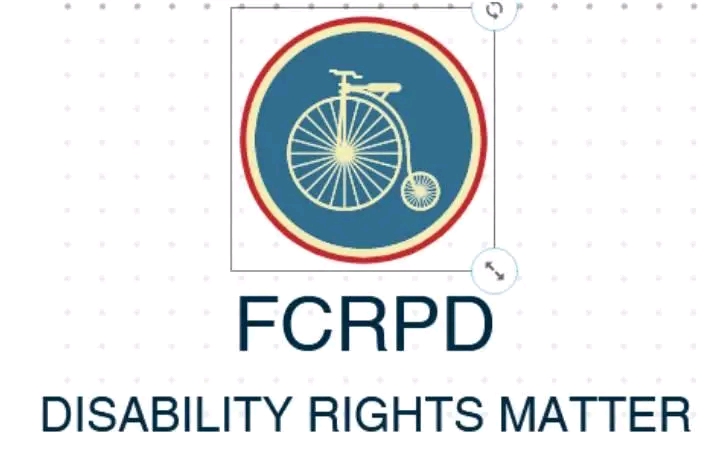

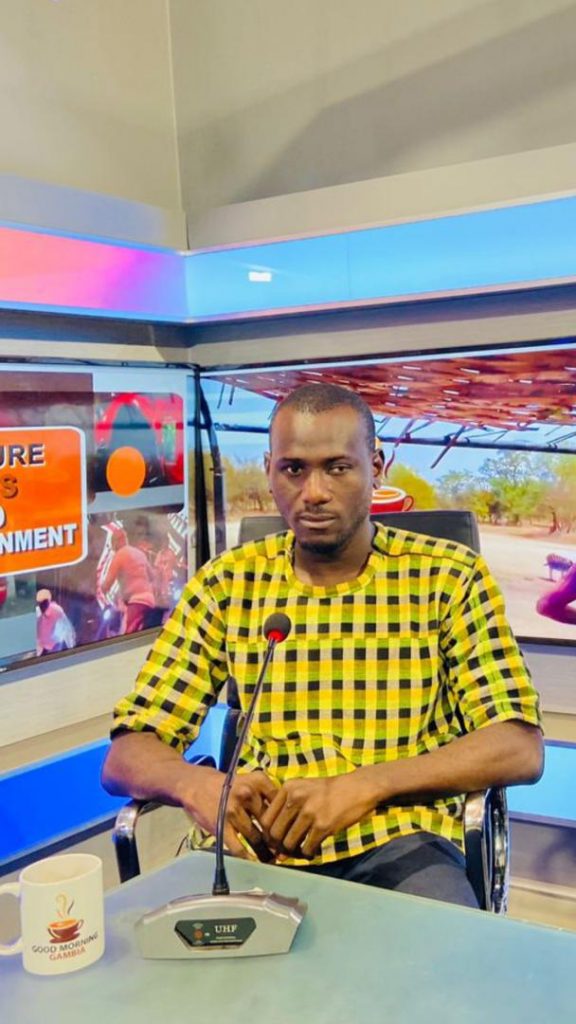
THE FOUNDATION OF CIVIC RIGHTS OF PERSONS WITH DISABILITIES ( FCRPD) ORGANIZED A SYMPOSIUM IN COMMEMORATION OF THE INTERNATIONAL DEAF AWARENESS WEEK.
The last week of every September is globally set aside as a very important week. This is the week known as the international Deaf awareness week, where issues related to persons with deaf and hard of hearing are discussed. As the globe celebrates this week, The foundation for the civic rights of persons with disabilities FCRPD is never an exception in commemorating this noble and great event. As a means of showing solidarity with the deaf community and advocating for all persons with disabilities, it is incumbent upon the foundation to also take part in recognising the week. In it’s participating to raise awareness on challenges faced by persons with deaf and hard of hearing, FCRPD organised a symposium on Saturday, 28th September 2024 at the American Corner Bundung in commemoration of the week on the theme Importance Of Inclusive Education The event was attended by different media houses, sister organizations such as the girls Agenda (an organization that stands in advocating and safeguarding the welfare of Girls including Girls with disabilities), persons with deaf and hard of hearing and other private individuals across different sectors of life.
During the Symposium, many important issues were discussed ranging from difficulties faced By the deaf community including communication barriers and other restrictions hindering social inclusion.Mr Samba Jaiteh, the President and Founder of FCRPD expresses his gratitude to all the participants that came to witness the event to join hands in commemorating the international Deaf awareness week. Mr Jaiteh, further explain the efforts the foundation is taking on a daily bases in advocating for the rights and social inclusion of persons with disabilities through different medium like newspapers outlets, Radio talk shows, social media platforms etc. to create awareness for the masses to continue protecting the rights of persons with disabilities. “ we usually organise training for our members on human guide techniques in preparing them with skills and techniques to be well prepared in serving persons with disabilities including the visual impairs , those in wheelchairs etc. as a form of capacity building “ he said. Jaiteh also expressed his plan of enrolling The volunteers to be train in sign language who will in turn help in interpreting for the deaf and hard of hearing. He however expressed the challenges faced in lack of financial support to implement most of his plans. He urged all to help the foundation for funding so as to continue Offering services to PWDs.
However, Mr. Samba continue by expressing his unsatisfaction by highlighting the numerous challenges face by persons with disabilities in our societies such as in homes, offices, schools, transportation services, hospitals, education etc. He strongly urged the government to always involve persons with disabilities during policy drafting periods for an inclusive policing.
Mrs Mariama Sanyang, the communication officer Girls’ Agenda spoke about their organization’s involvement in advocating for rights of the women with deaf and hard of hearing. She also lamented the role played by the Girls’ agenda in developing the PWDs through leadership trainings.
She reveal that, many women with Hard of hearing are encountering problems on a daily bases in our societies such as ; FGM, Early Marriage, violence against women etc but they have less opportunities and places to express themselves to the authorities. She call on the government and other stakeholders to come out and protect their rights for equality in distributions and opportunities as enshrined in The Gambia’s 1997 constitution.
As a week designated for commemorate awareness for the Deaf, Mr Lamin Ceesay , a member of FCRPD give a brief statement on the importance of introducing sign languages in our education curriculum where children will be taught to sign from nursery to university stage . He asserts that , this will be the only means to breach the communication barrier for the Deaf.
He further strengthen that, if all the learning institutions can graduate hundreds of sign languages interpreters yearly, the communication gap would be closed for easy access to information for all.Indeed the event was interactive and educative where participants were given the opportunity to ask questions or give recommendations.
Participants like Aja Binta Jabang, a hard of hearing woman and other deaf people thank the foundation for creating such informative and important program. They strongly recommends The Gambia government to hire full time sign language interpreter(s) in the National Assembly or nominate someone of disabilities who shall be their advocate in the parliament. They equally call on the Ministry of Education to consult and consider persons with disabilities when planning to build education structures . Noting that, these structures should be accessible to all irrespective of your physical appearances .
The event concluded with questions and answers from the audience.
FCRPD thank all for attending the symposium and still looking for support in any form.
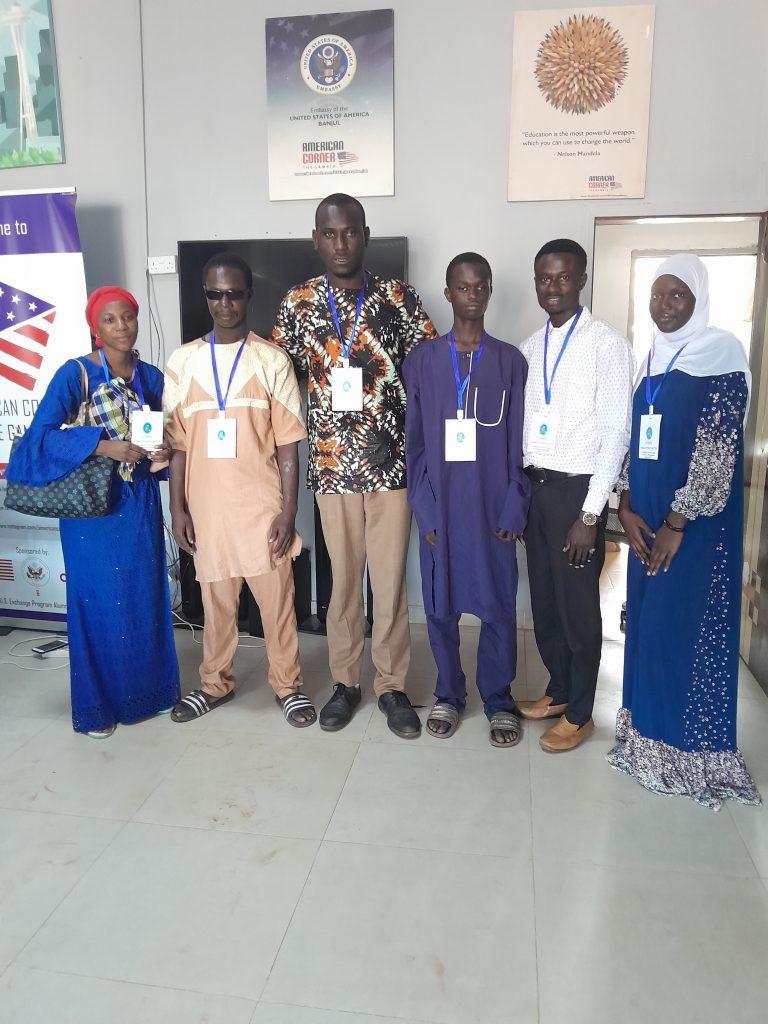
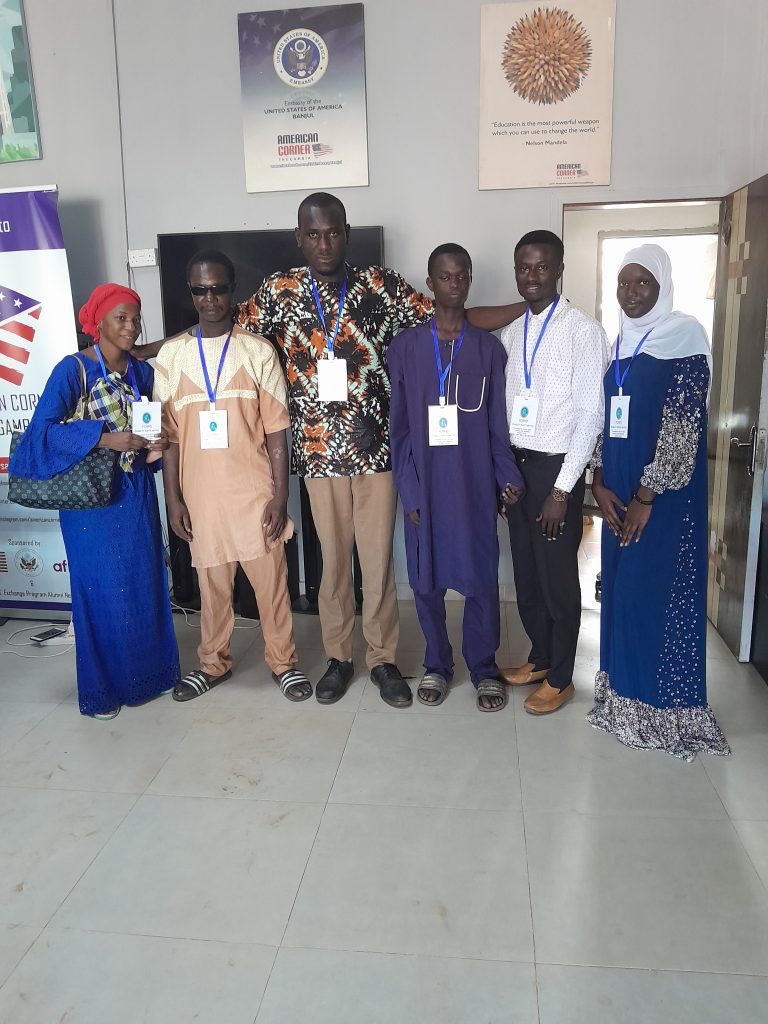
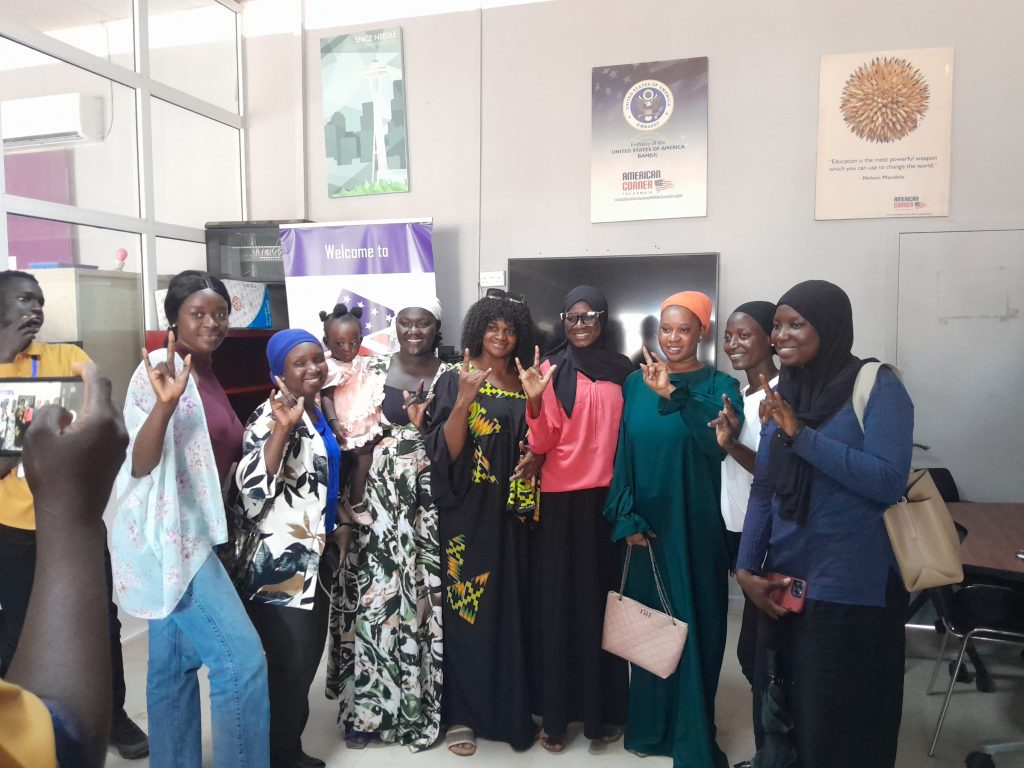
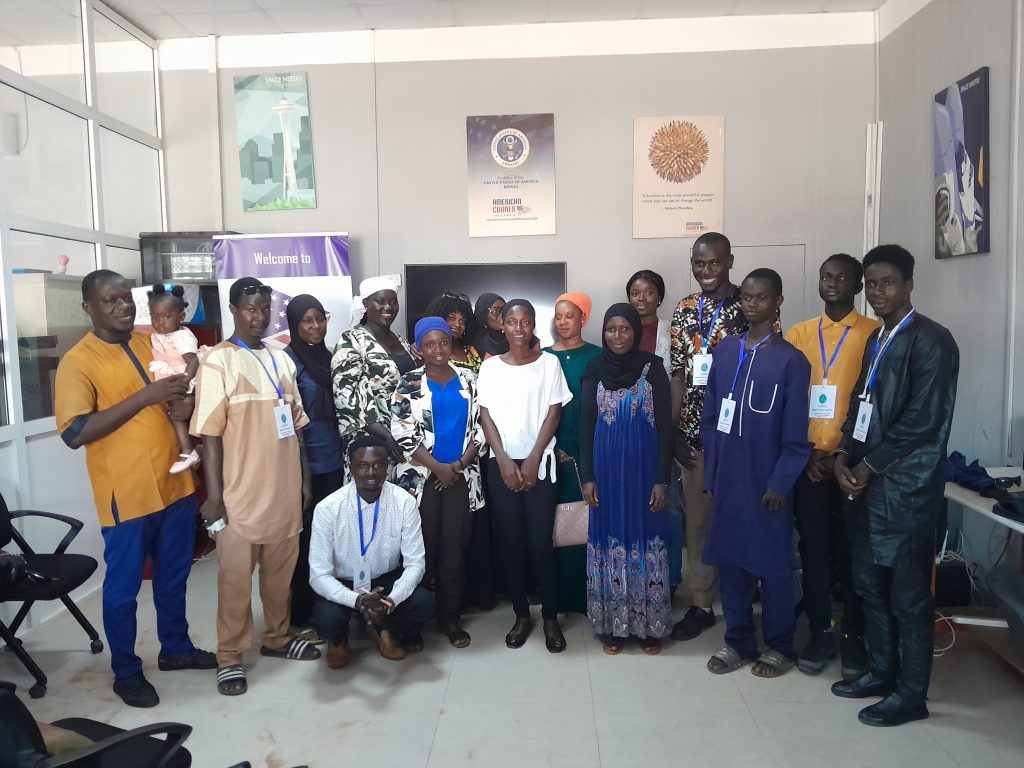
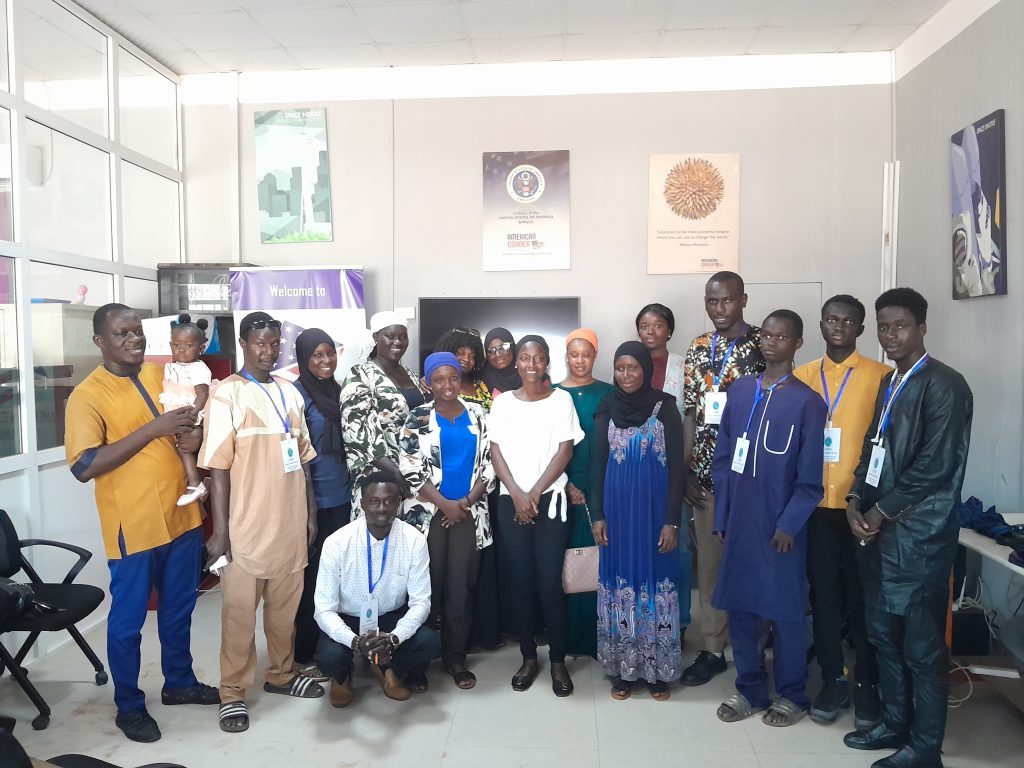
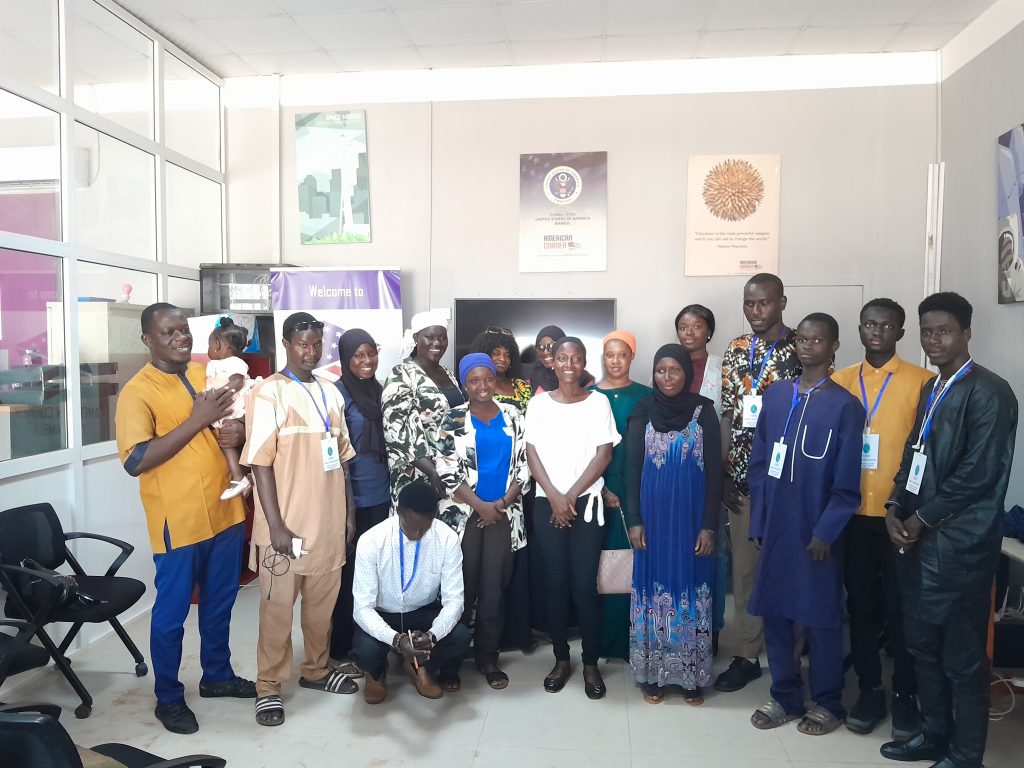
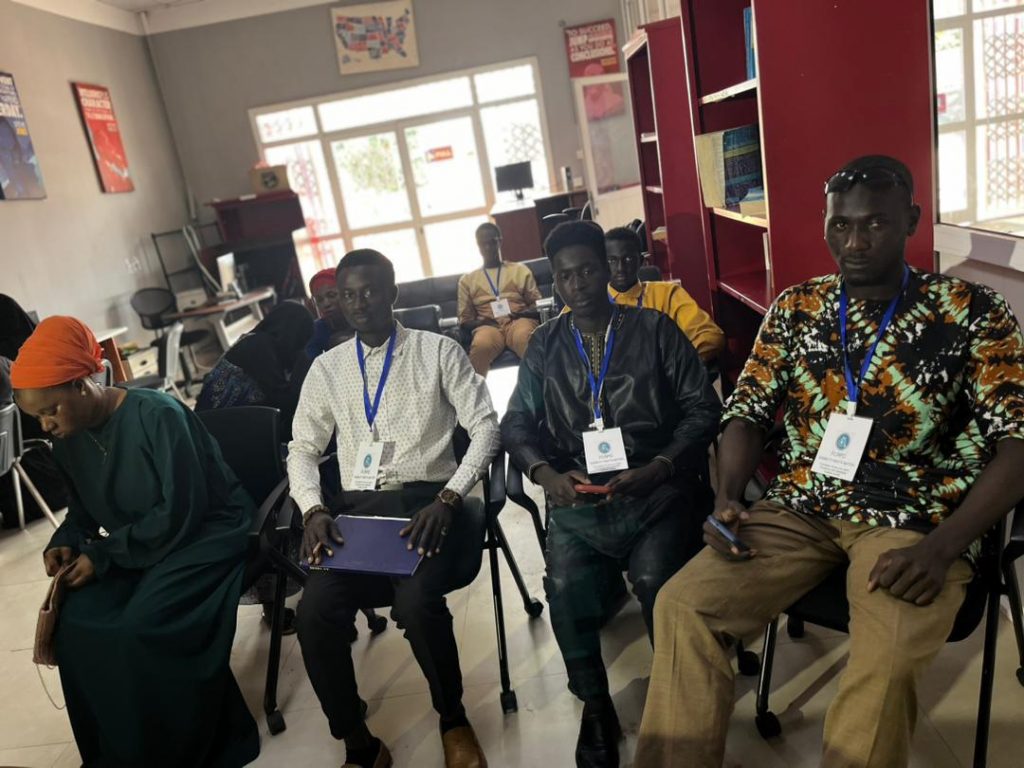
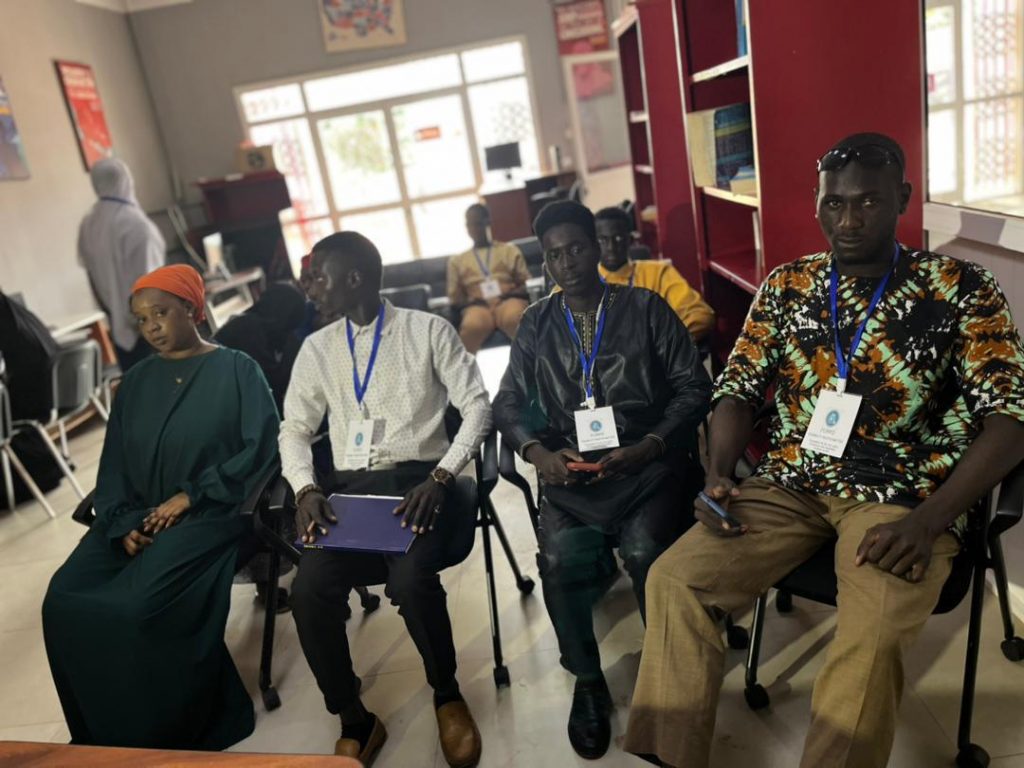
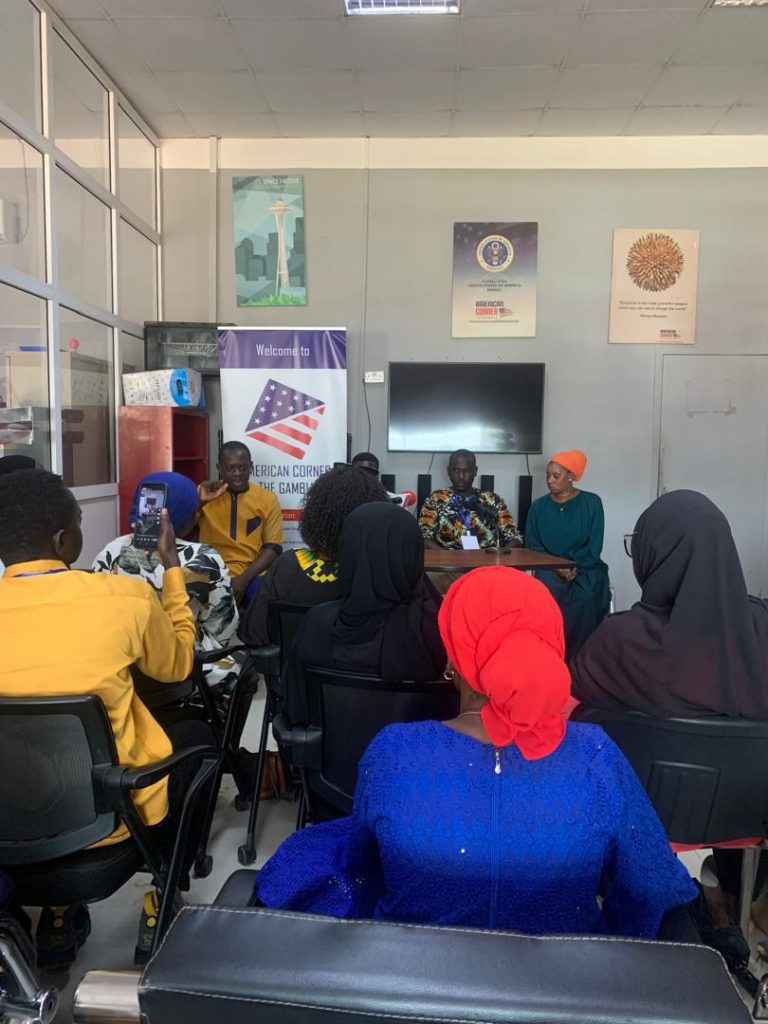
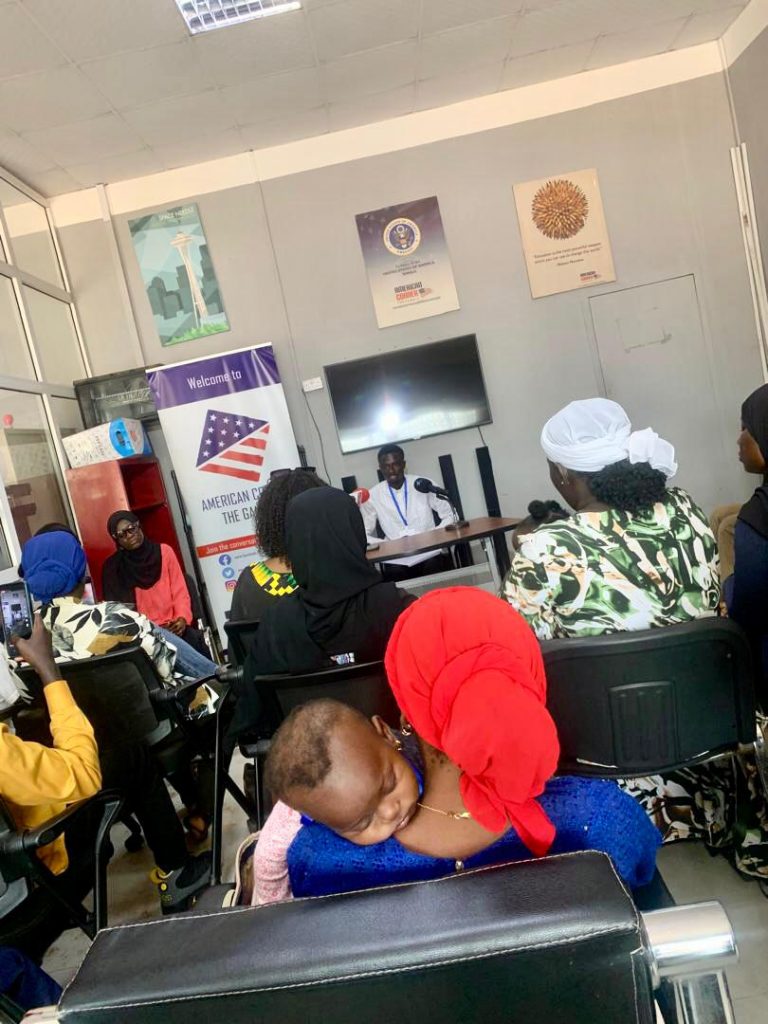
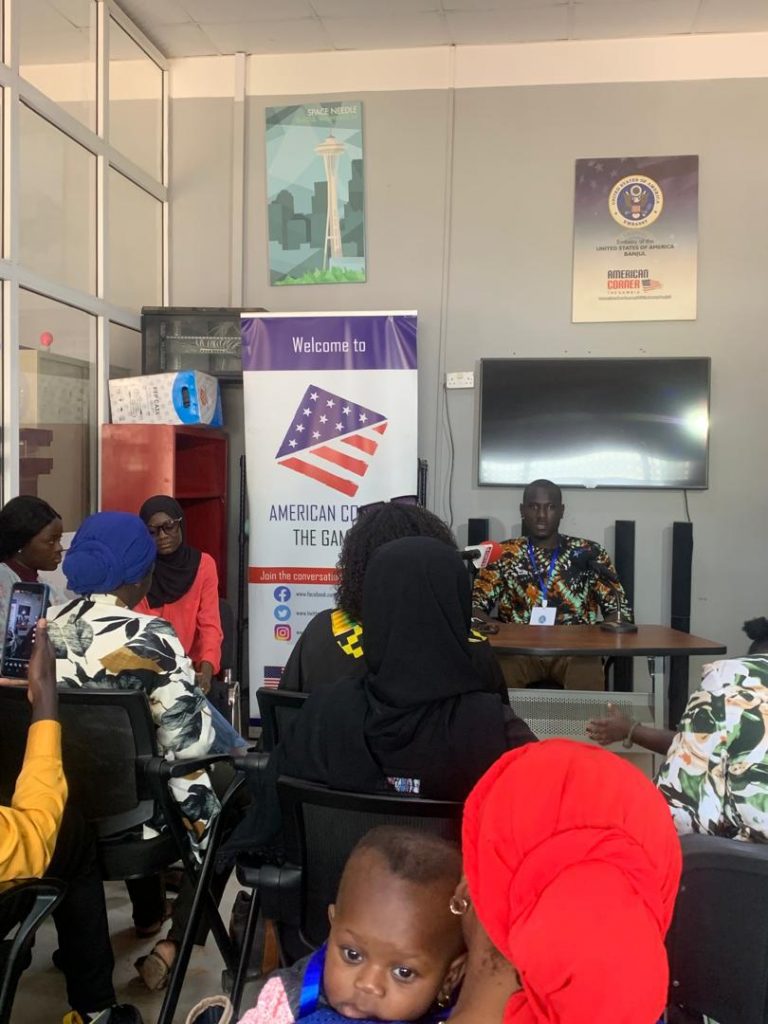
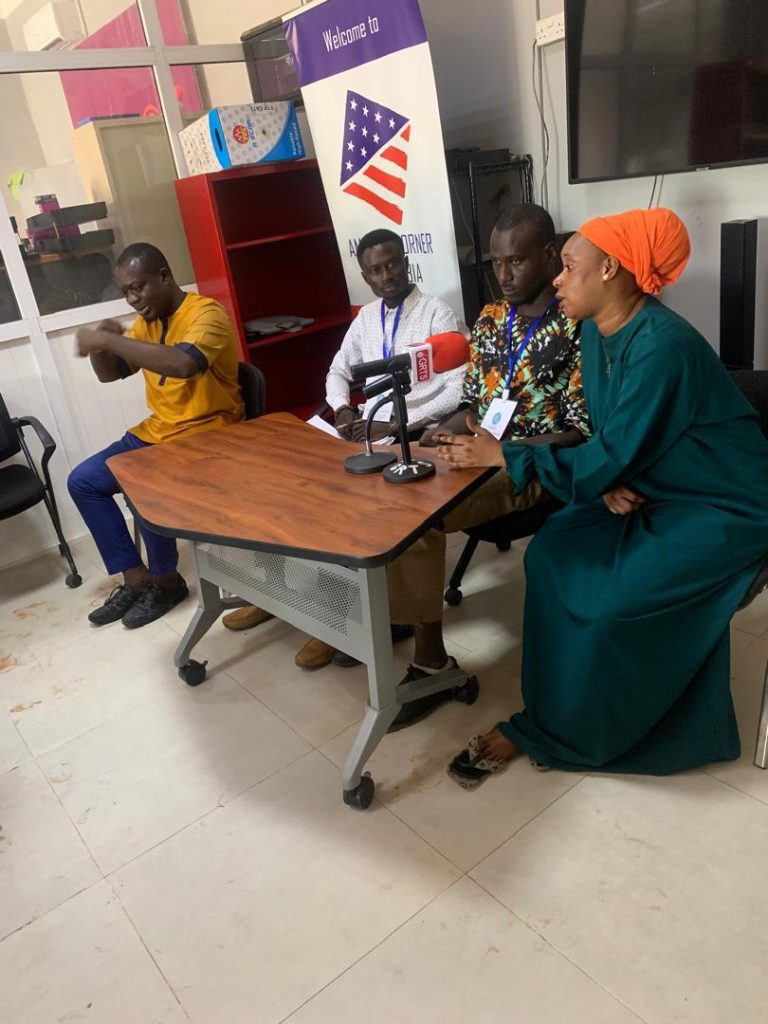
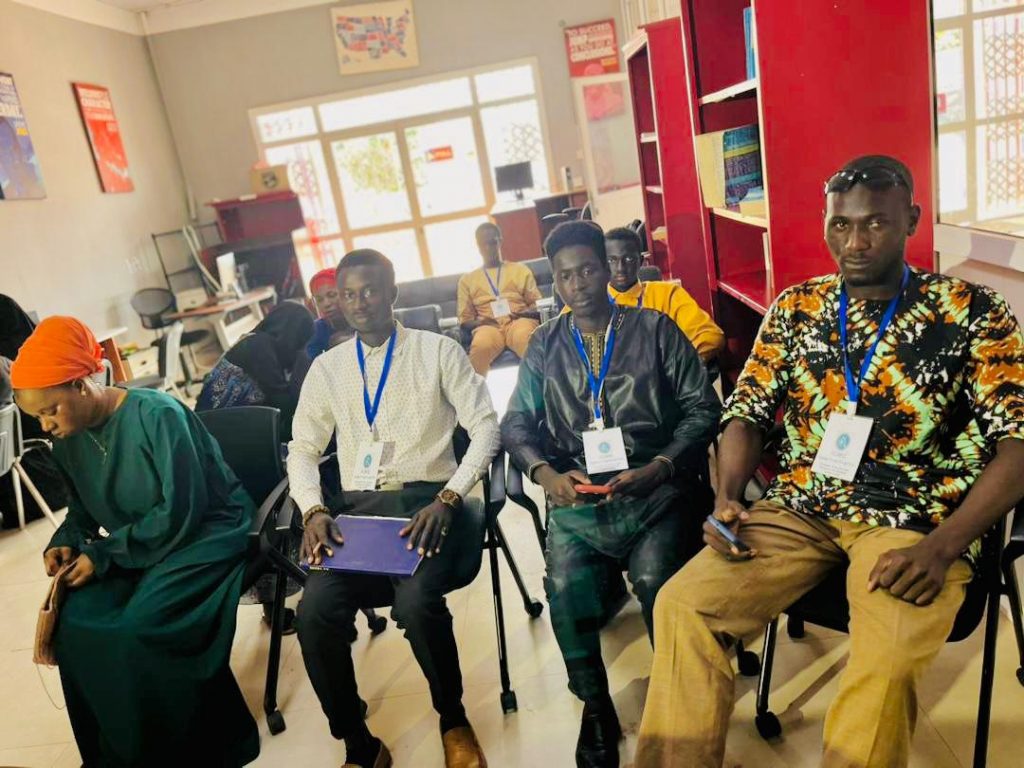
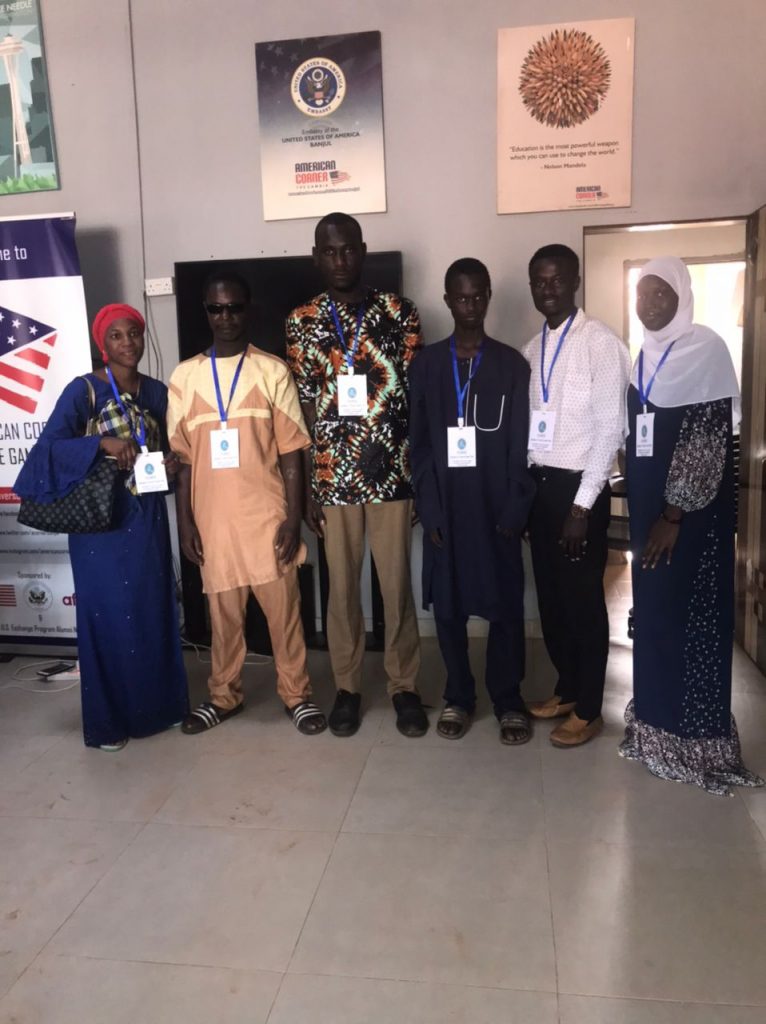
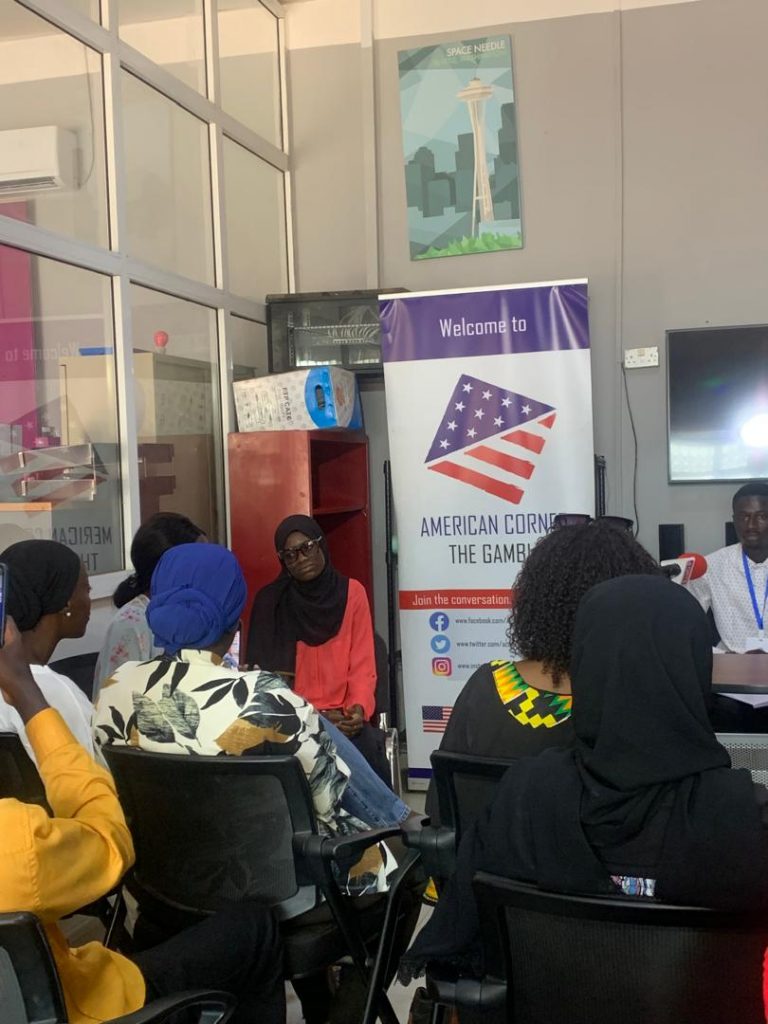
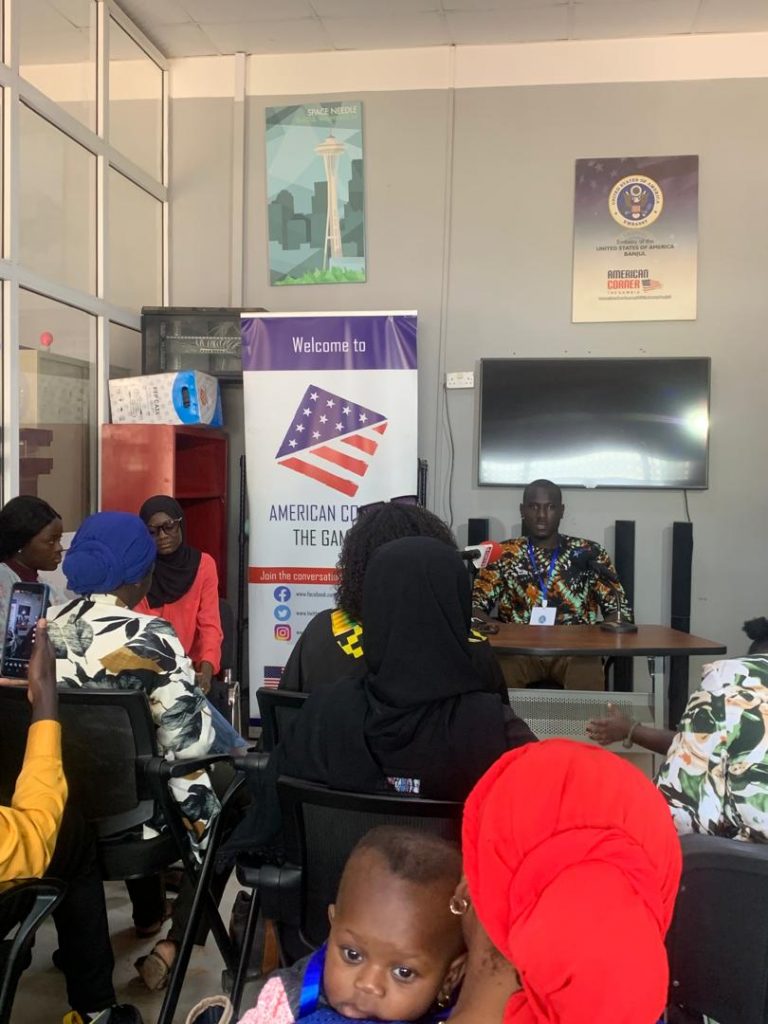
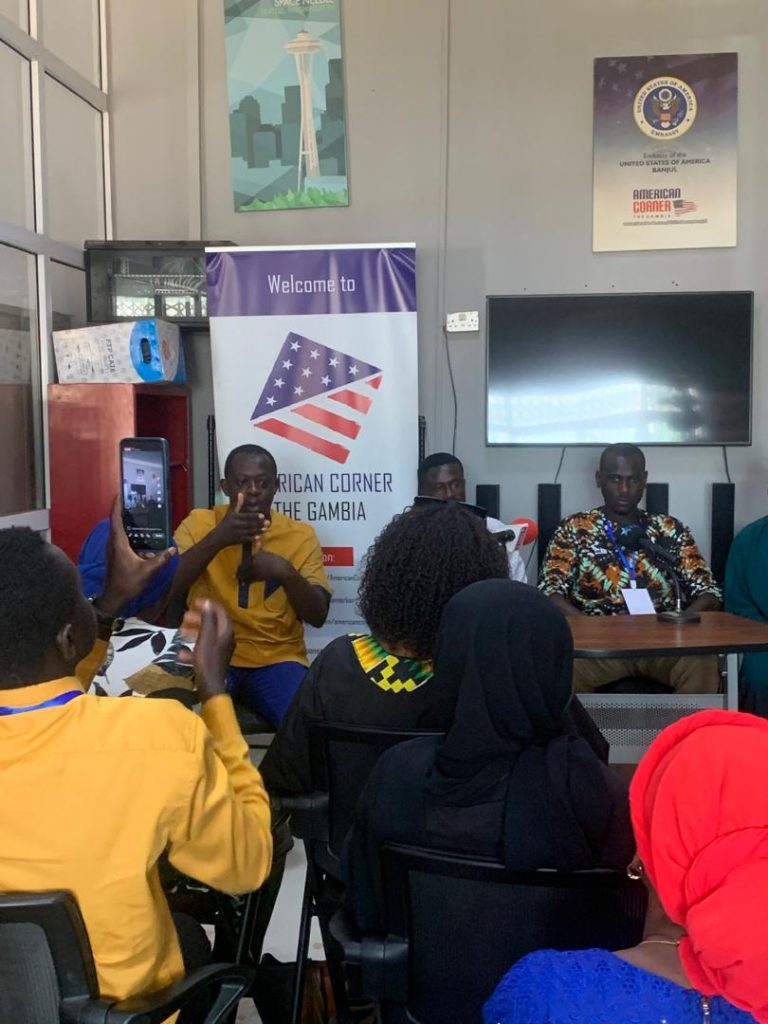
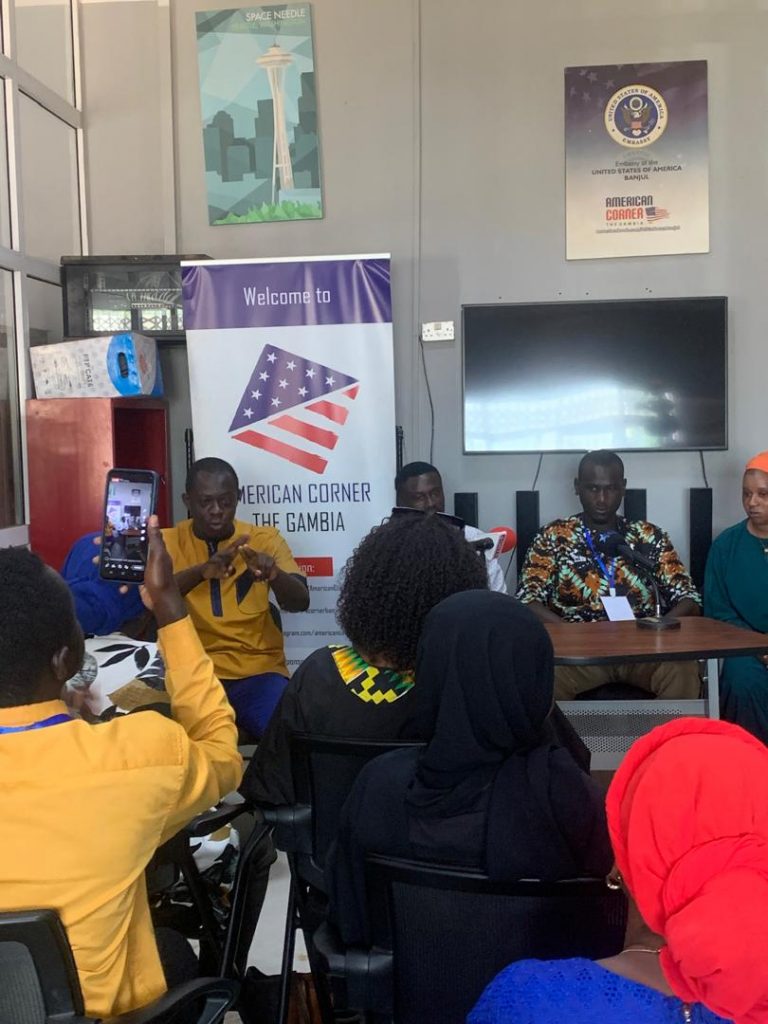
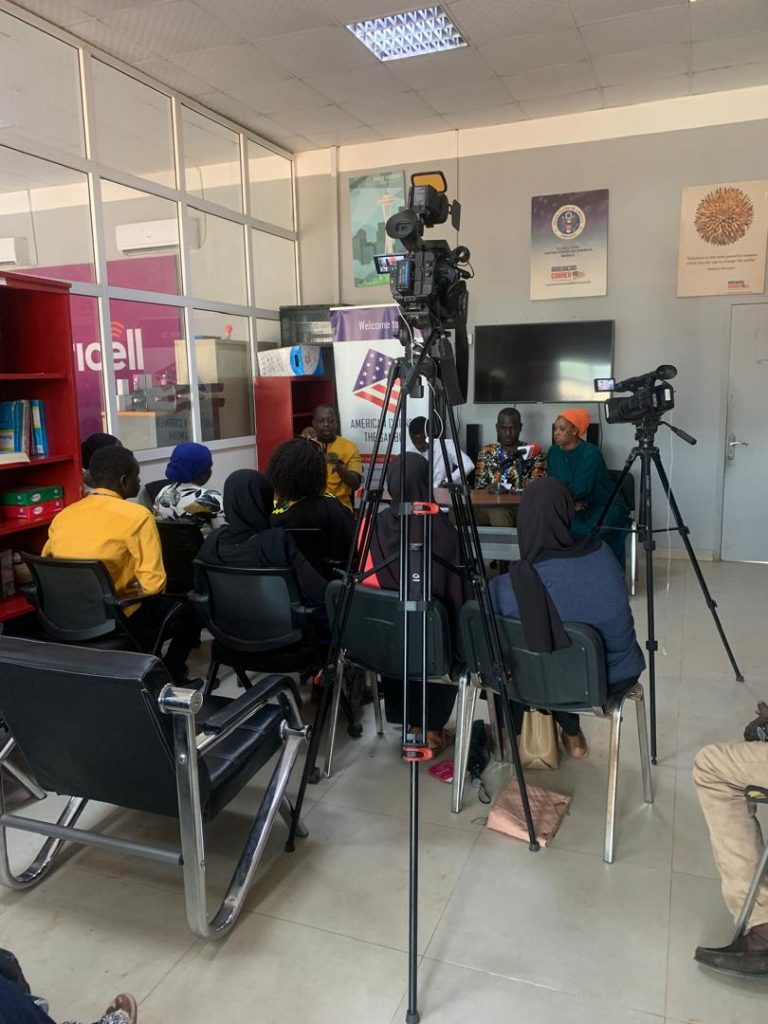
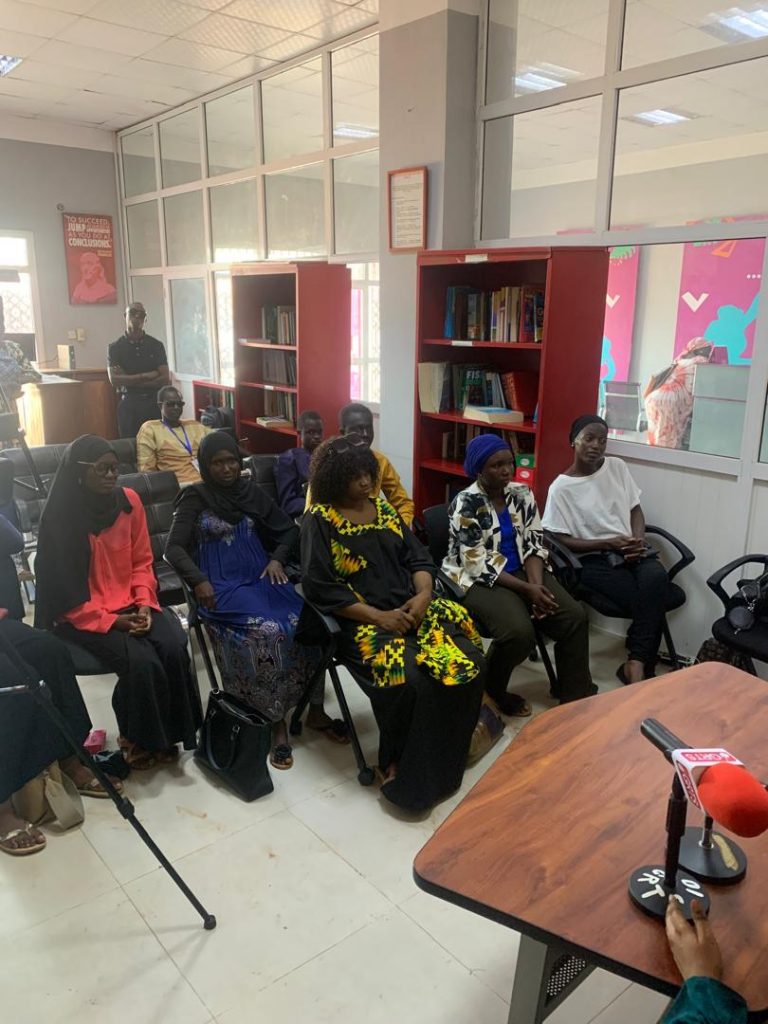
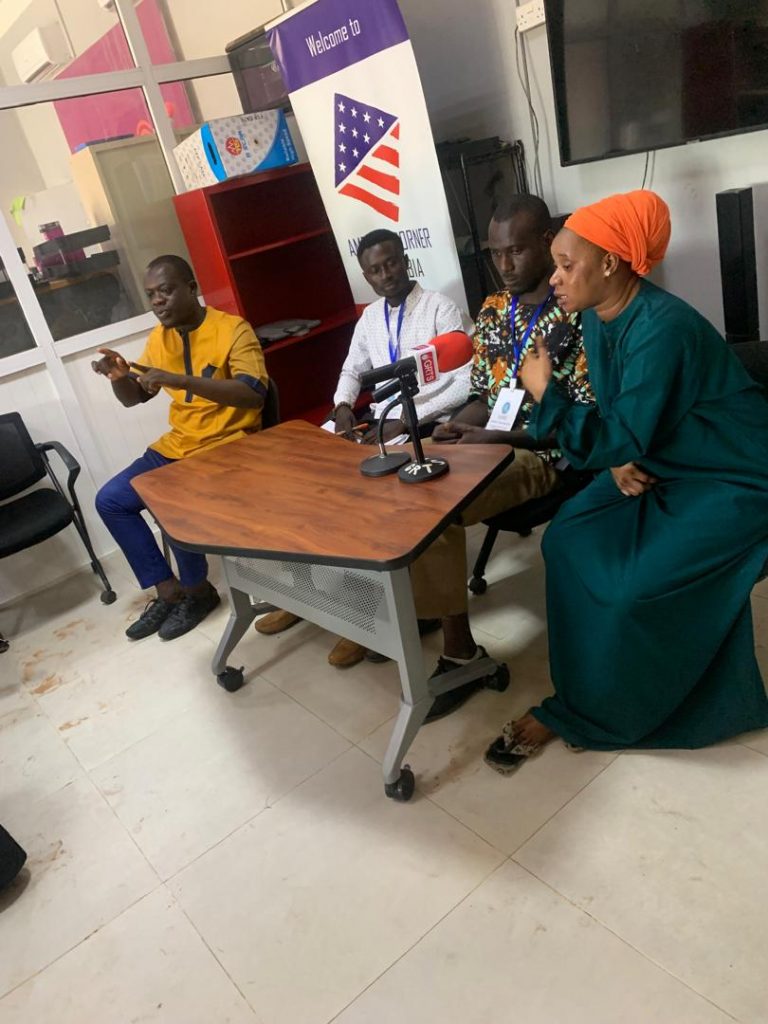
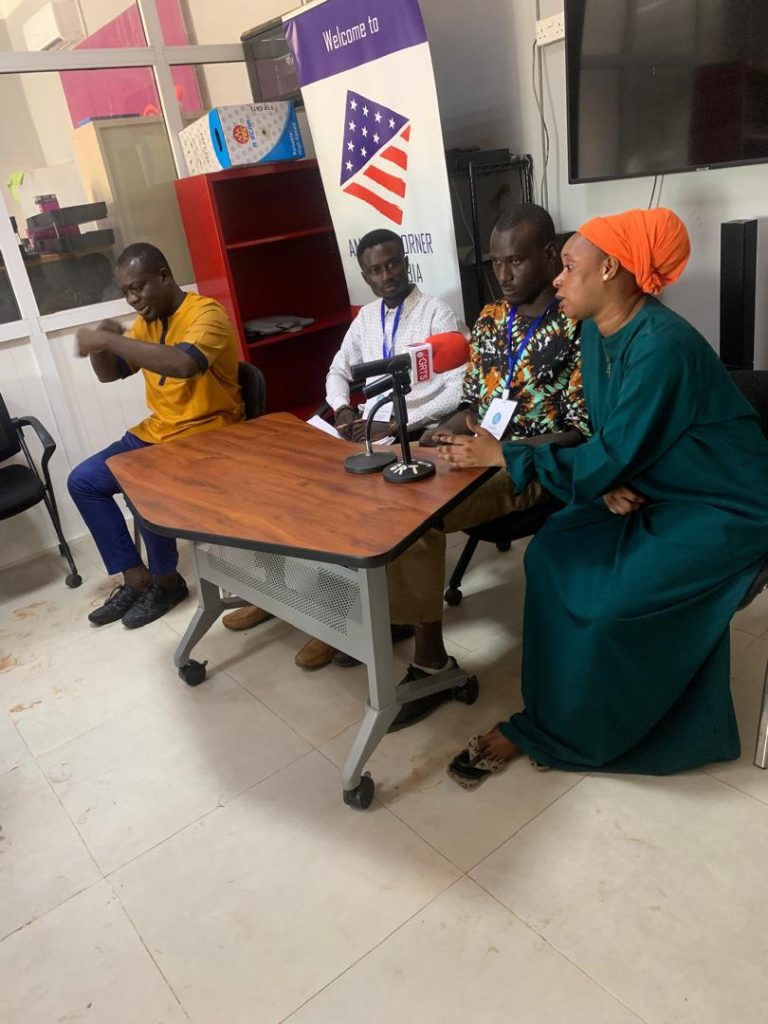
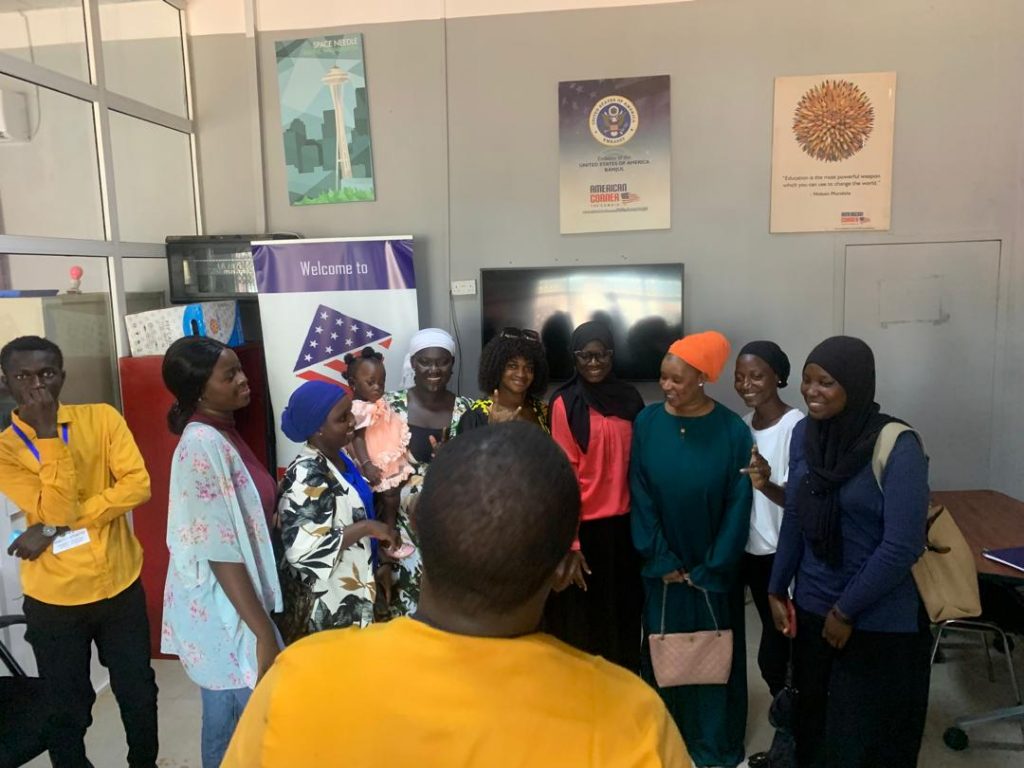
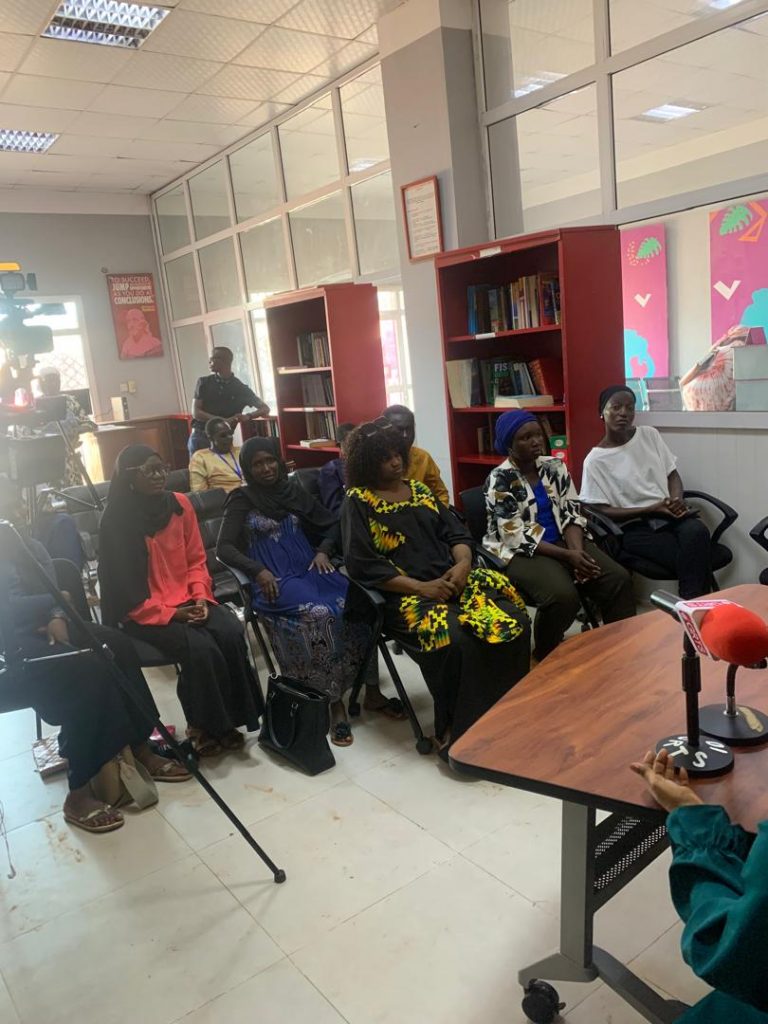
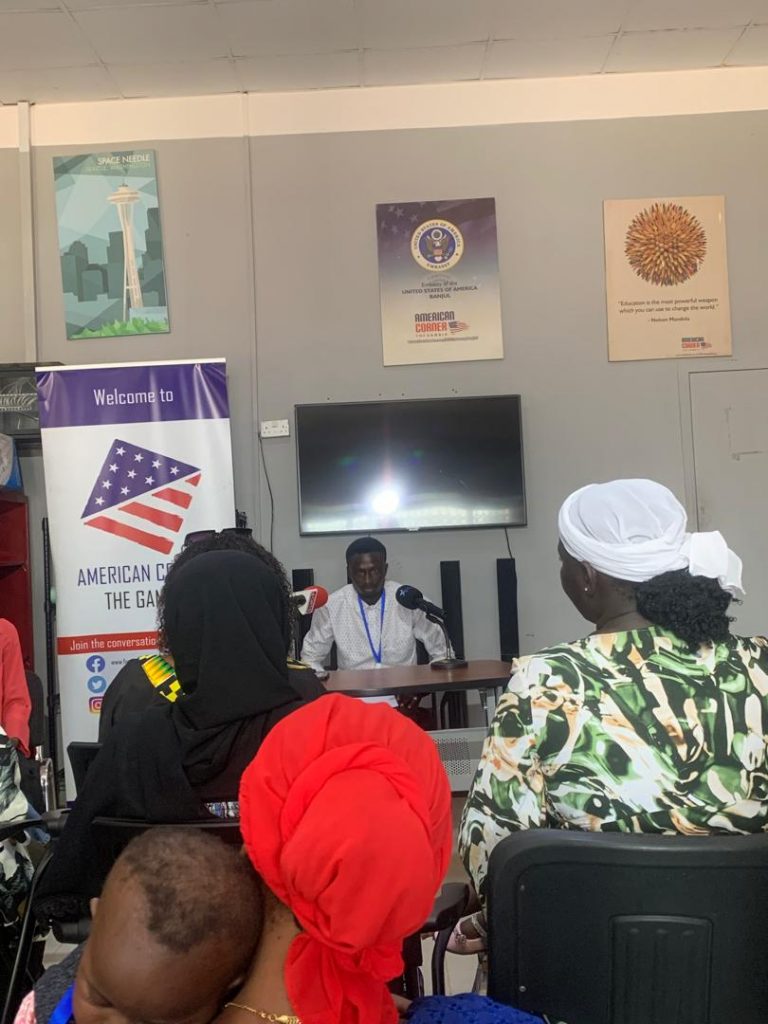
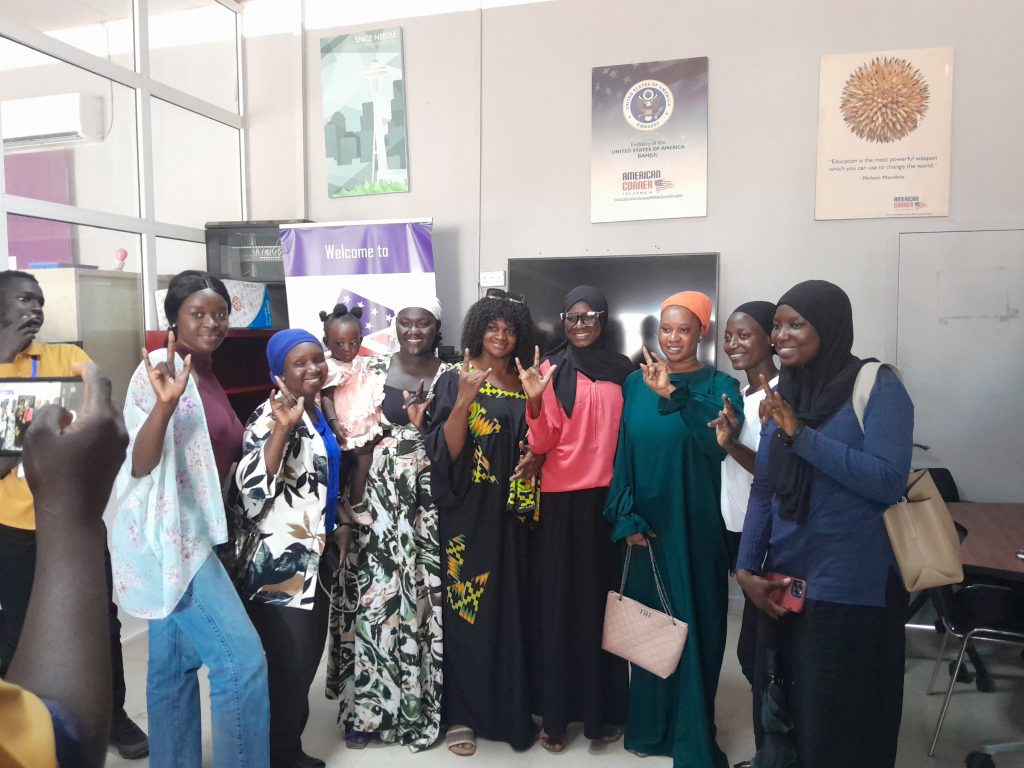
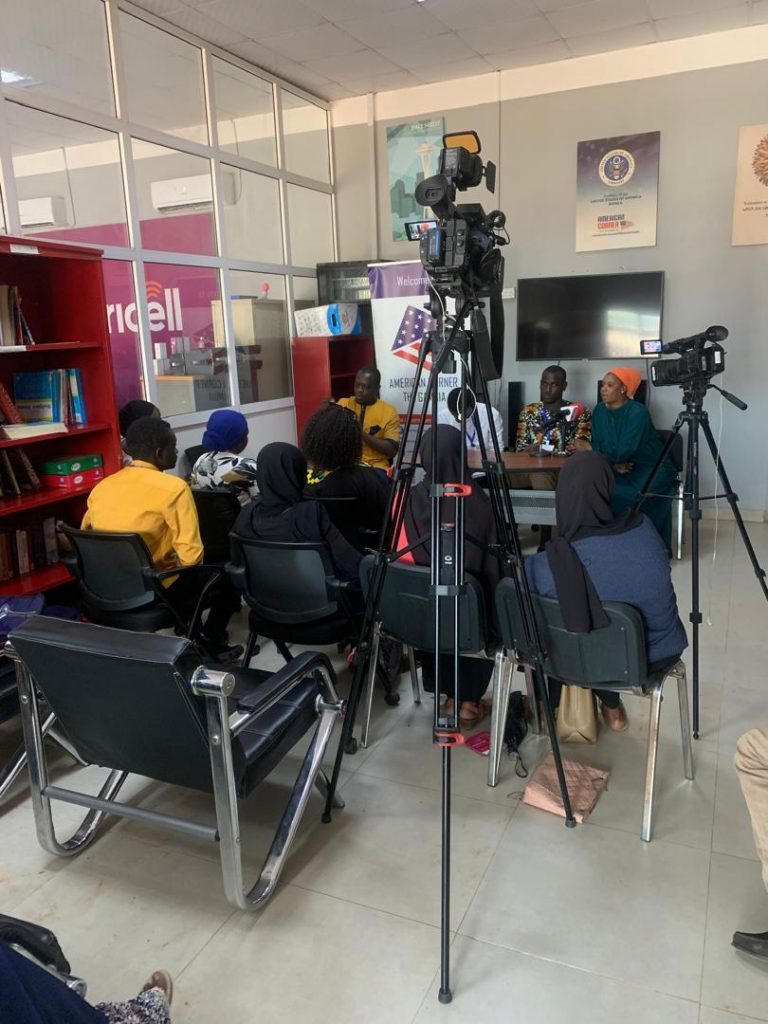
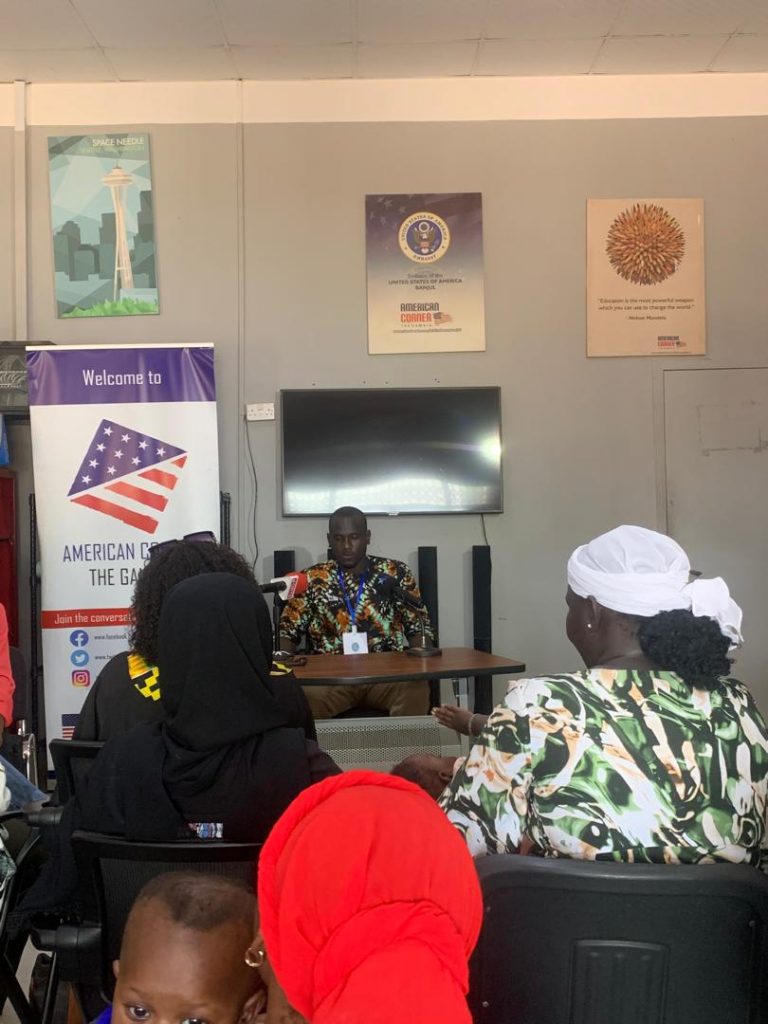
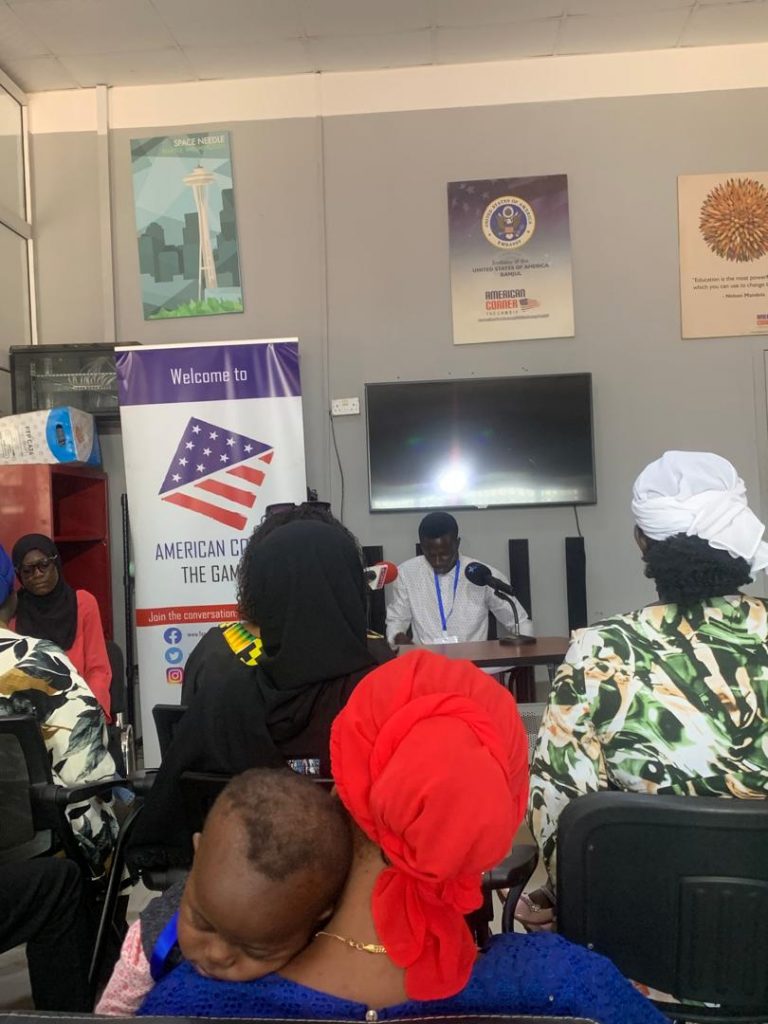
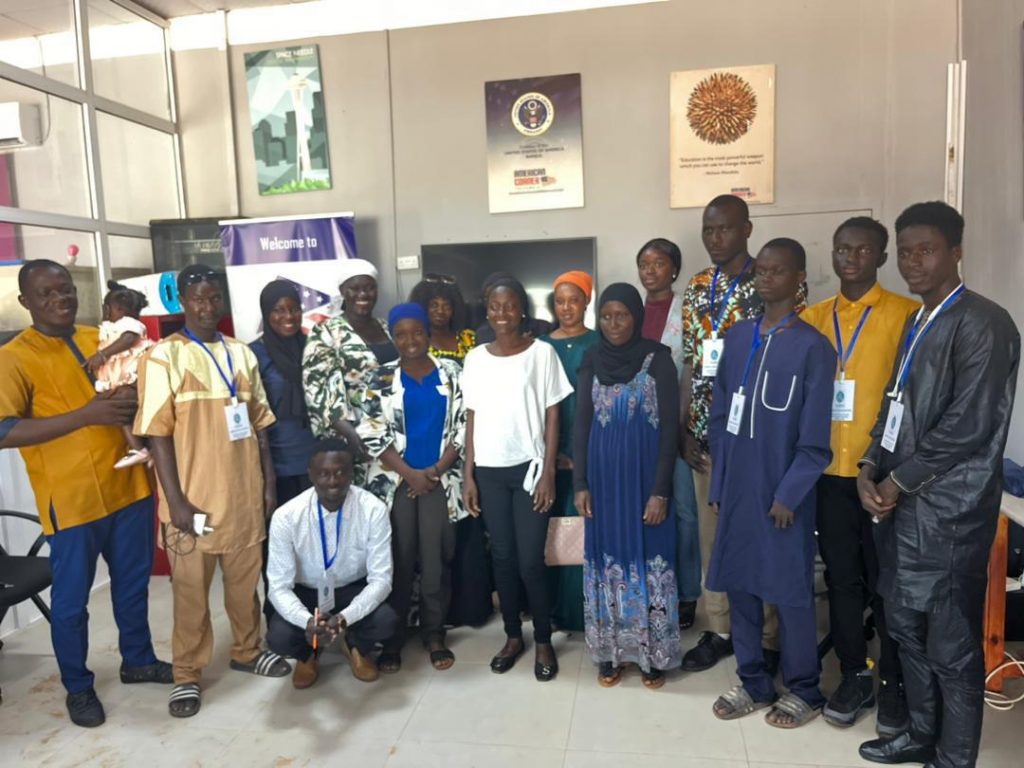
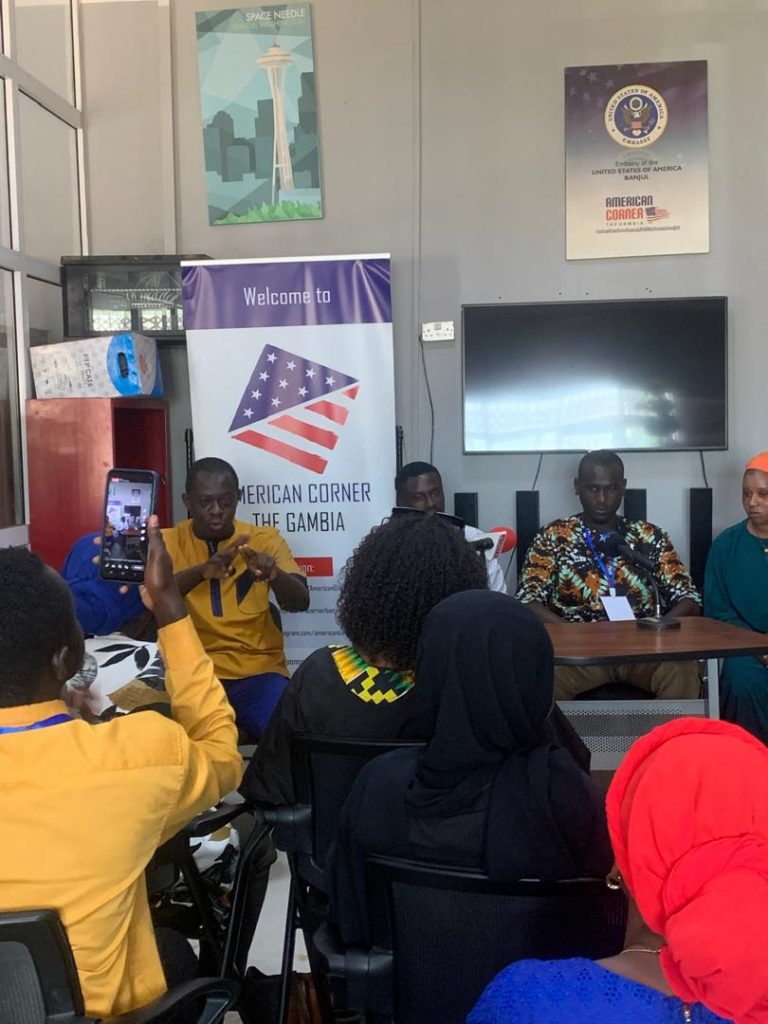
FCRPD on Air discussing on the challenges faced by persons with deaf and hard of hearing
.As the world commemorates the international deaf awareness week, the foundation for the Civic Rights of persons with disabilities FCRPD under the leadership of Samba Jaiteh (Batch Samba) was not an exception. Since the beginning of the week, FCRPD has been engaging in several severel activities and publications in advocating for the rights and social inclusion of persons with deaf and hard of hearing in particular.
On Tuesday 24th September, FCRPD through it’s President Samba Jaiteh and other members were aired in one of the local Radio stations in the Gambia to discuss on the isues affecting persons with deaf and hard of hearing. During the live program, they discussed on very important areas in gearing towards an inclusive society for all. These are some of the areas the dilated on
:1.. The importance of introducing sign languages as a language to be taught in schools and communities.
2.. The creation of employments for persons with disabilities in general persons with deaf/hard of hearing in particular.
3. The eradication of discrimination in the society.
4. The introduction of sign language in all television programs to enable them also have access to information.
5. The need to introduce The training of teachers, students, parents and guidance on the use of sign language. Etc. As an Organization FCRPD is committed to serving the PWDs to it’s utmost best. Much appreciation to Fayda1 1 FM for giving us the floor to discuss such pivotal issues.
Please help in anyway that you could do we can continue impacting many lives. FCRPD is a Non-profit charitable organisation that has no sponsored but purely depends on the little we have from members. Please reach out if you have anything to offer or maybe link us to other connections. In the Service of Persons with disabilities We remain FCRPD.
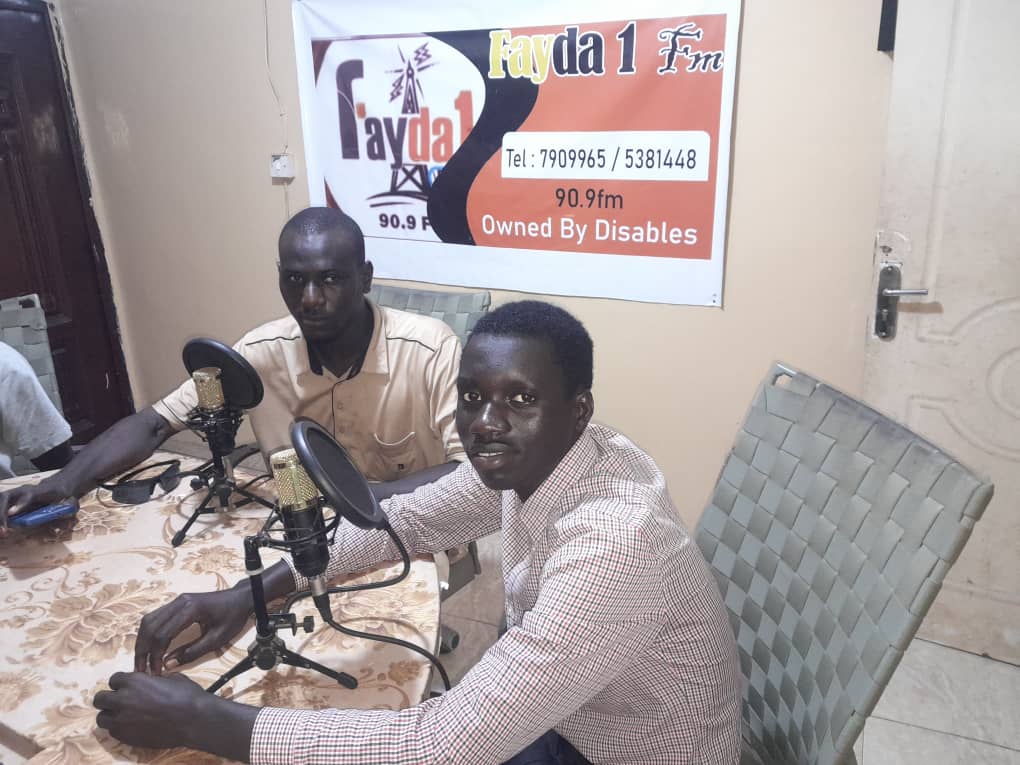
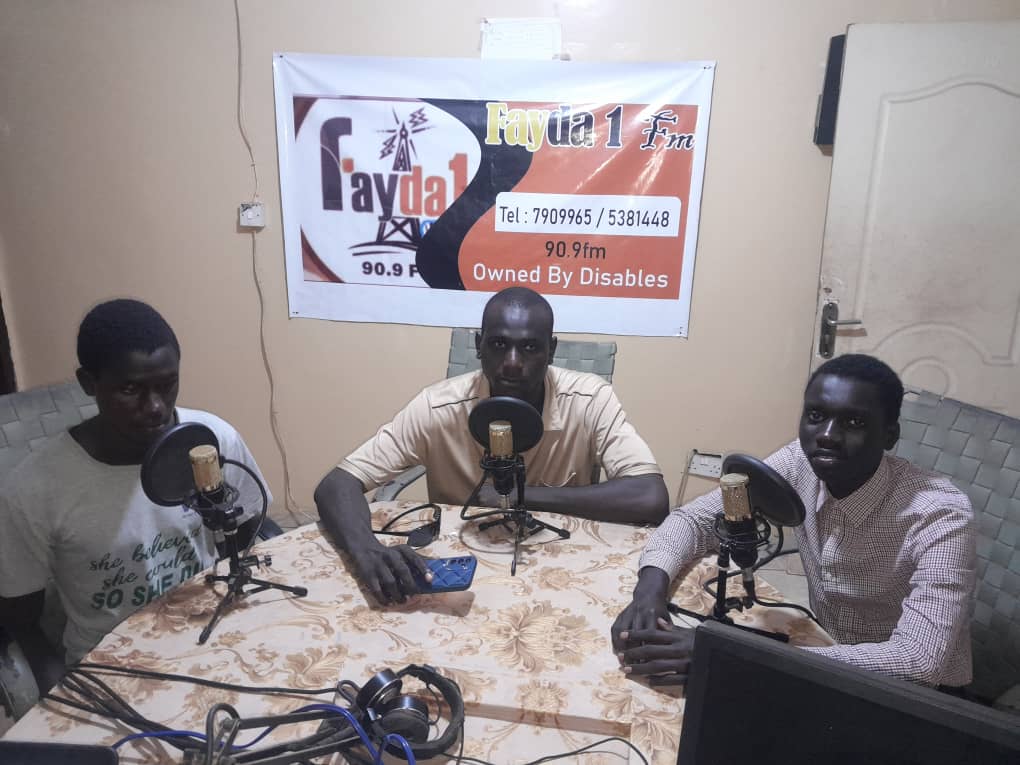
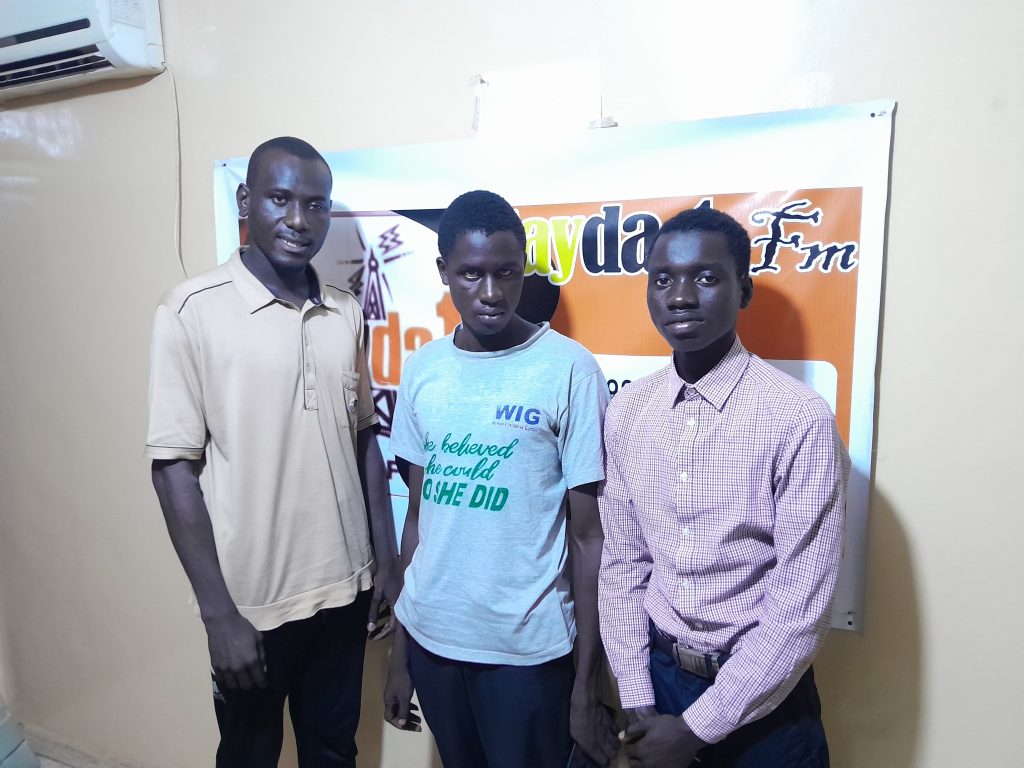
FCRPD joins the deaf community in celebrating the international day of Sign language.
The International Day of Sign Language is celebrated annually on September 23, a day dedicated to raising awareness of the importance of sign language in the full realization of human rights for deaf individuals. Established by the United Nations General Assembly in 2017, this day aligns with the principles of inclusion, equality, and diversity that are central to human rights frameworks.Historical BackgroundThe date of September 23 was chosen to commemorate the founding of the World Federation of the Deaf (WFD) in 1951. The WFD is a global non-governmental organization that works to protect and promote the rights of the Deaf community. It aims to foster international cooperation to improve the status of national sign languages and promote their recognition as legitimate languages with their own grammatical structures.The observance of this day is closely connected to the broader International Week of the Deaf, which brings attention to the global issues affecting the Deaf community. Both events highlight the necessity of sign language in ensuring that deaf individuals have access to information, education, and the opportunity to participate fully in society.Sign Language: A Vital Tool for InclusionSign languages are natural languages with their own rules and structure. They are not simply translations of spoken languages but rather fully developed forms of communication with their own syntax, grammar, and idiomatic expressions. Different countries and regions have their own sign languages, such as American Sign Language (ASL), British Sign Language (BSL), and French Sign Language (LSF), among many others.For many deaf individuals, sign language is the primary means of communication, and it plays a critical role in their sense of identity and belonging to a community. However, despite the growing recognition of sign languages, many deaf individuals still face significant barriers. These include limited access to sign language interpreters, underrepresentation in media, and lack of educational resources in their native sign languages.Why This Day Matters1. Raising Awareness: The International Day of Sign Language shines a spotlight on the challenges and triumphs of the Deaf community. It reminds the world of the need for equitable policies and practices that respect the rights of all individuals, regardless of their hearing ability.2. Promoting Inclusion: Sign language is vital for the social, political, and economic inclusion of deaf people. The celebration of this day encourages governments, organizations, and individuals to take action to support deaf communities by recognizing their languages and ensuring equal access to resources.3. Education and Accessibility: In many countries, deaf children lack access to education in their own sign language, which affects their academic performance and limits their opportunities. International Day of Sign Language encourages nations to invest in sign language education, both for deaf individuals and for the wider community, to create a more inclusive society.4. Human Rights: Language is key to the exercise of human rights. The United Nations Convention on the Rights of Persons with Disabilities recognizes sign language as a human right, asserting that deaf individuals have the right to express themselves in their native sign languages.Global Efforts and InitiativesCountries around the world celebrate the International Day of Sign Language with various activities, including sign language workshops, cultural events, and media campaigns. Governments and organizations often partner with deaf communities to create initiatives that promote greater visibility of sign languages in public life.One notable initiative is the International Sign Language Challenge, in which participants share videos of themselves using sign language phrases, thereby spreading awareness through social media platforms. Many educational institutions also hold events to teach basic sign language to students, helping to break down communication barriers.In 2024, the theme for the day continues to emphasize the importance of sign languages in achieving a more inclusive society where deaf individuals can participate equally in all areas of life. This aligns with the broader Sustainable Development Goals (SDGs), which aim to leave no one behind by fostering inclusion for all marginalized communities.ConclusionThe International Day of Sign Language is a powerful reminder of the significance of linguistic diversity in ensuring the equal rights and dignity of all individuals. It’s an opportunity to celebrate the beauty and richness of sign languages and to renew global commitments to improving the lives of deaf people. The efforts of deaf communities, advocates, and allies worldwide are central to creating a more inclusive future where sign languages are fully recognized, respected, and integrated into everyday life.By raising awareness and advocating for the rights of the Deaf community, this day plays a crucial role in promoting a more just and inclusive world for all.With all these said. FCRPD is calling on the Government to enforce policies that will make sign language as part of the languages taught in schools and communities. We are also urging them to creat employments and accessibility for persons living with heard of hearing.
